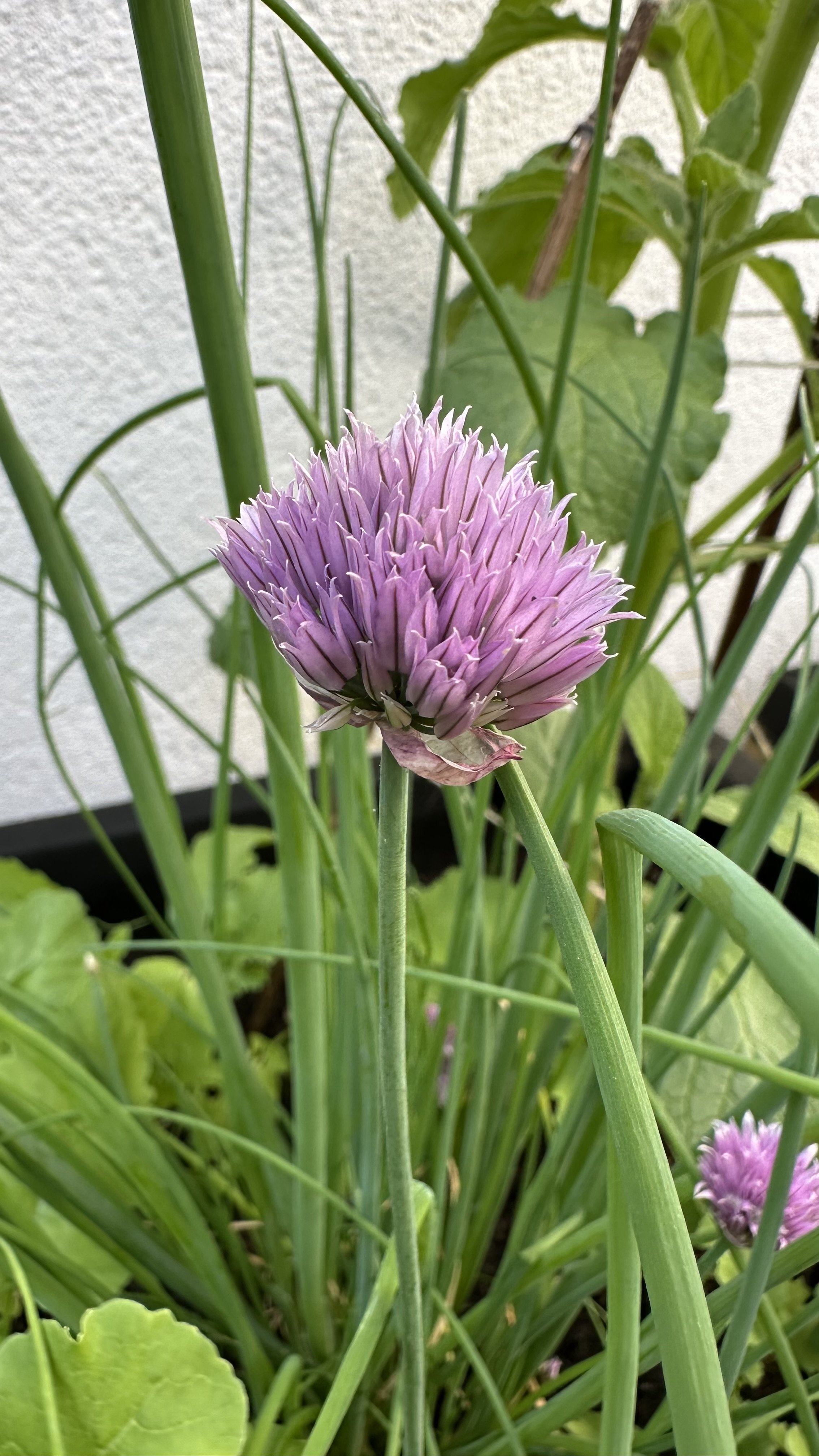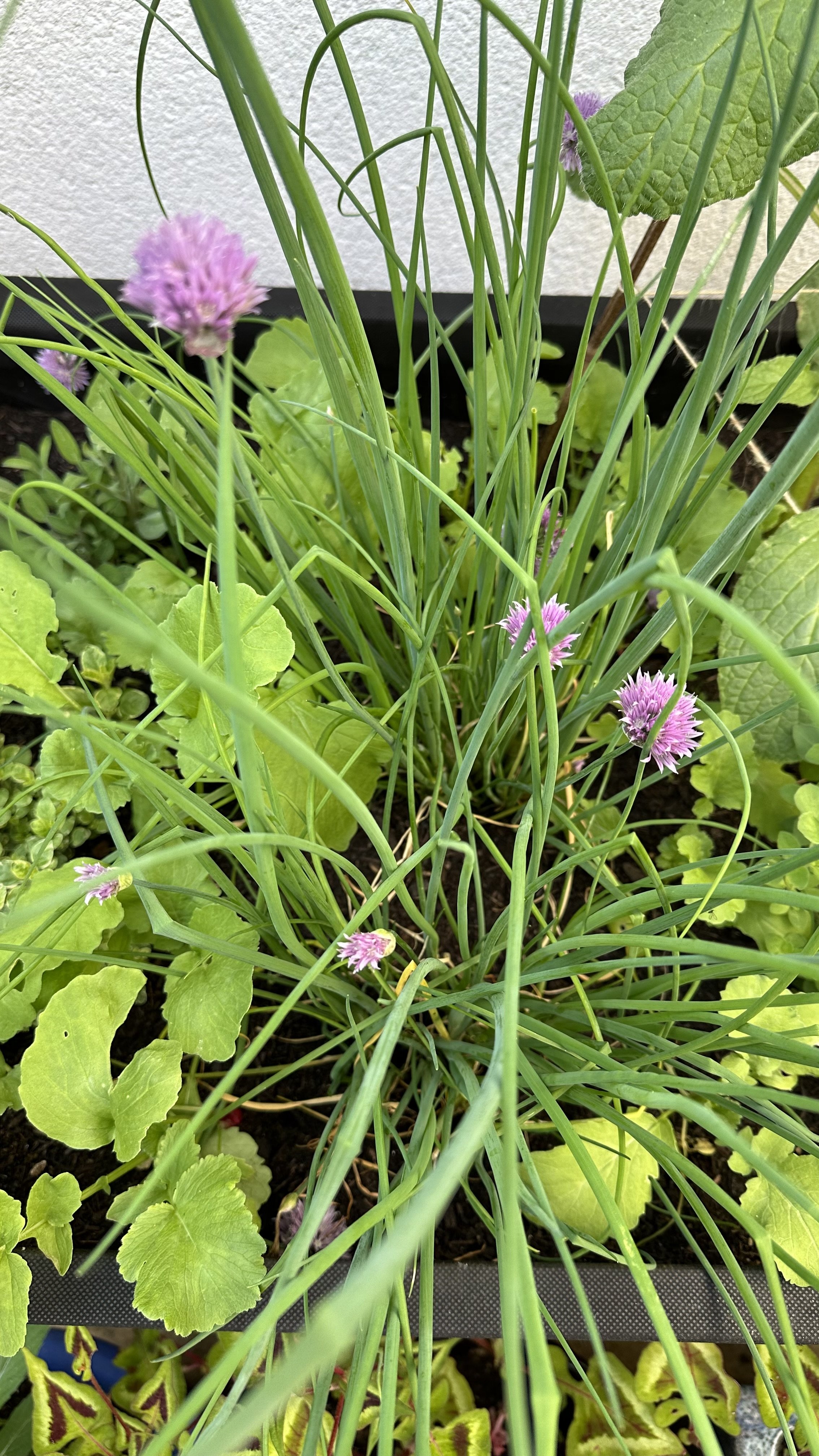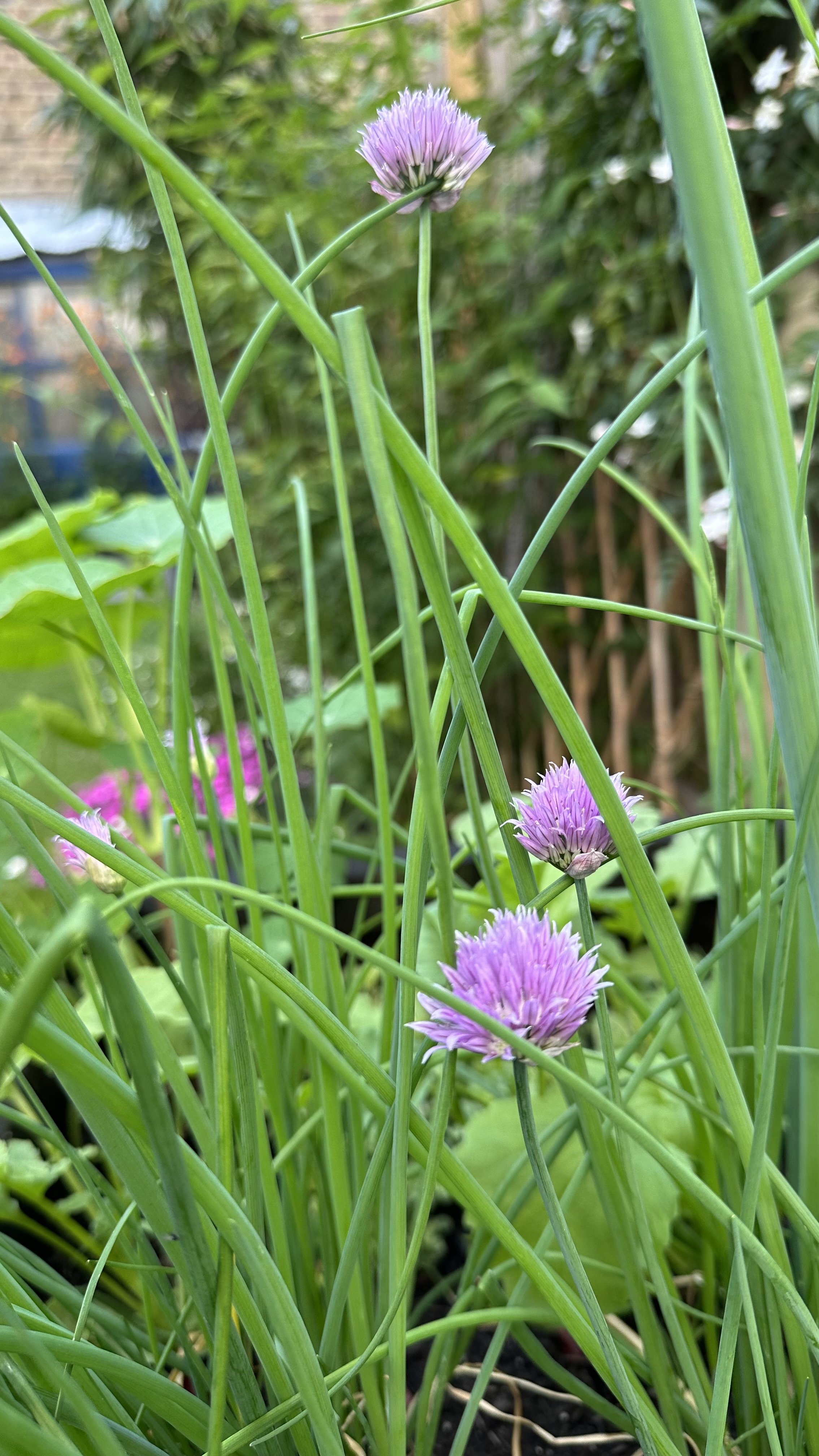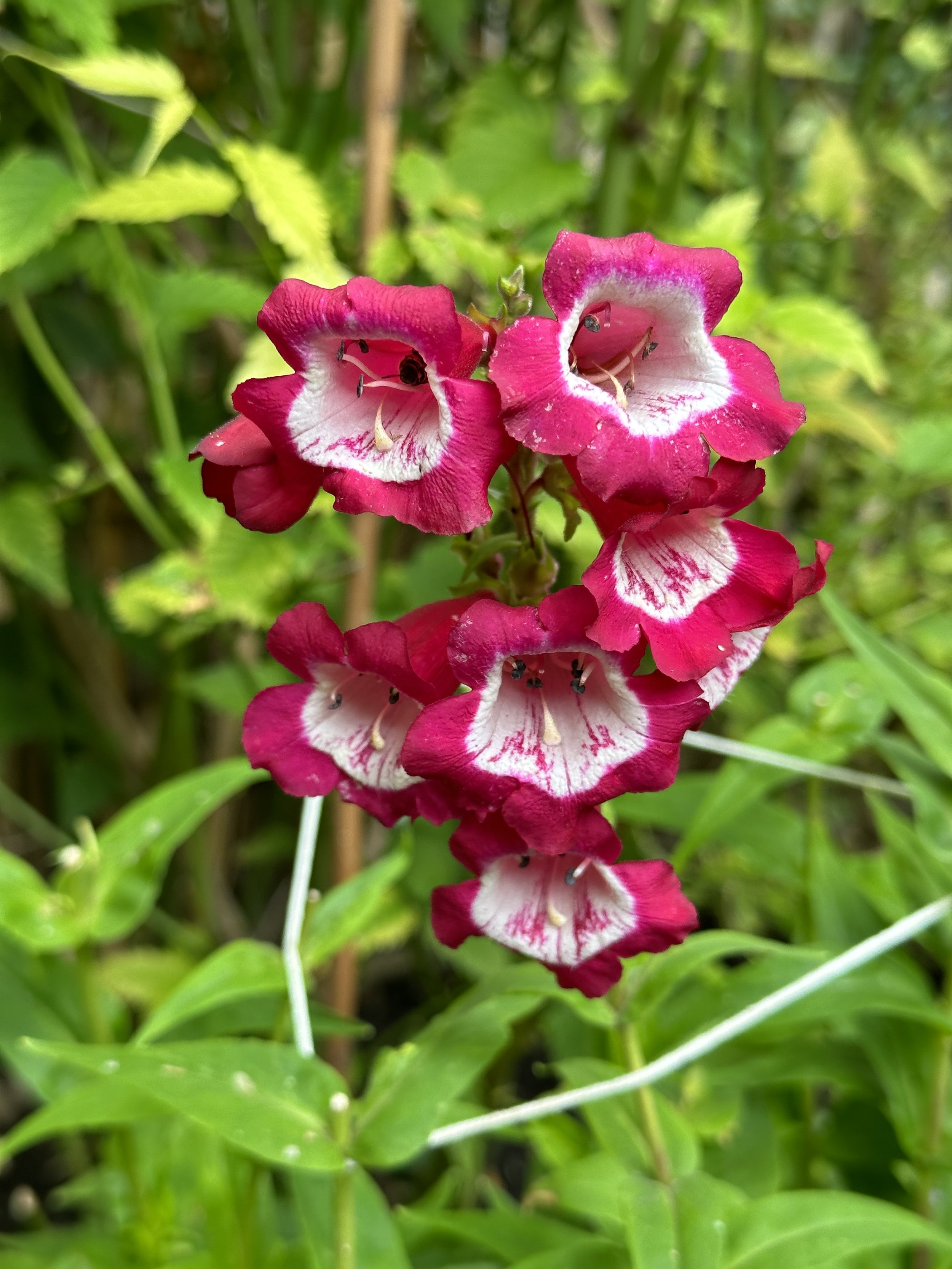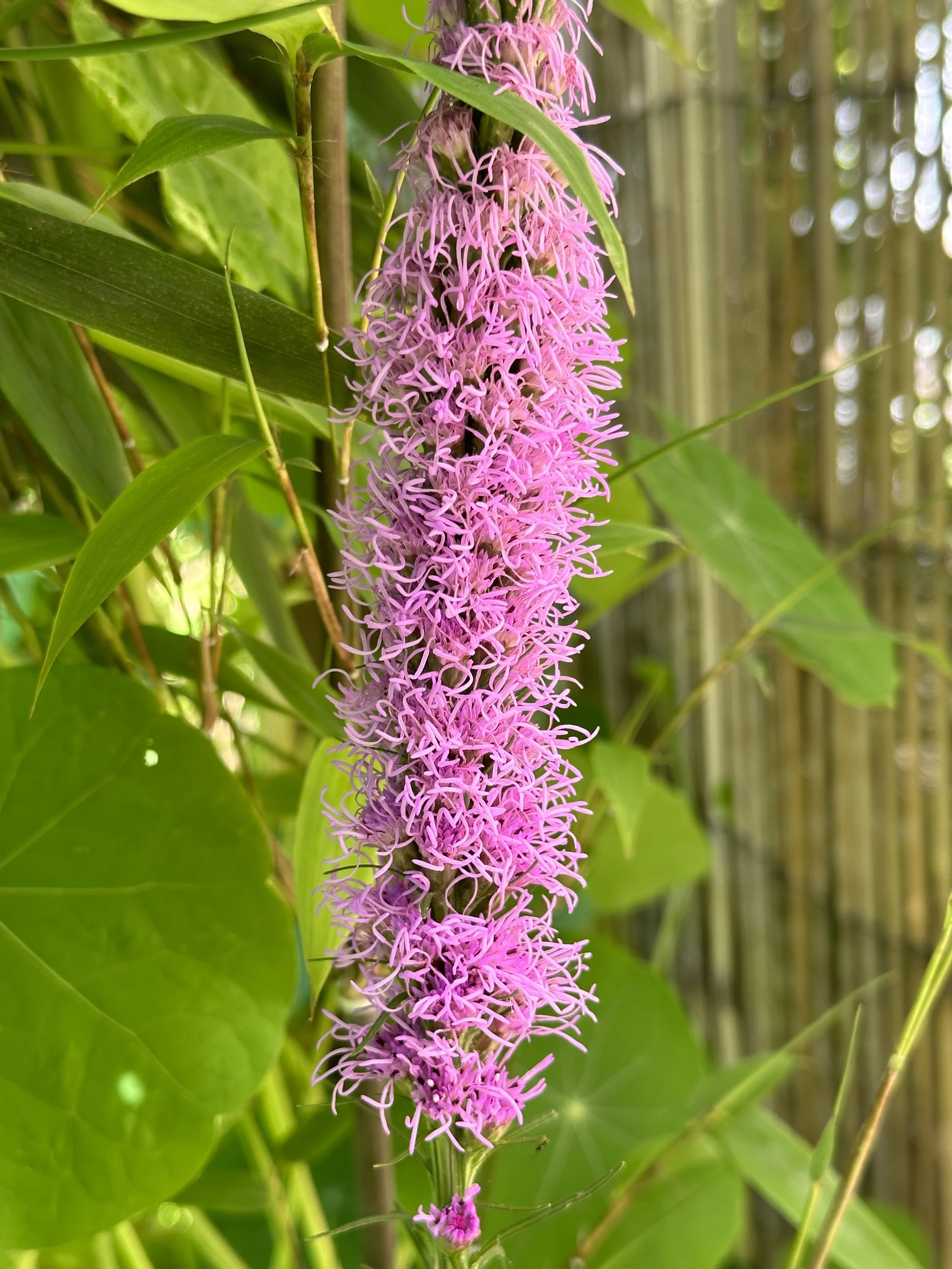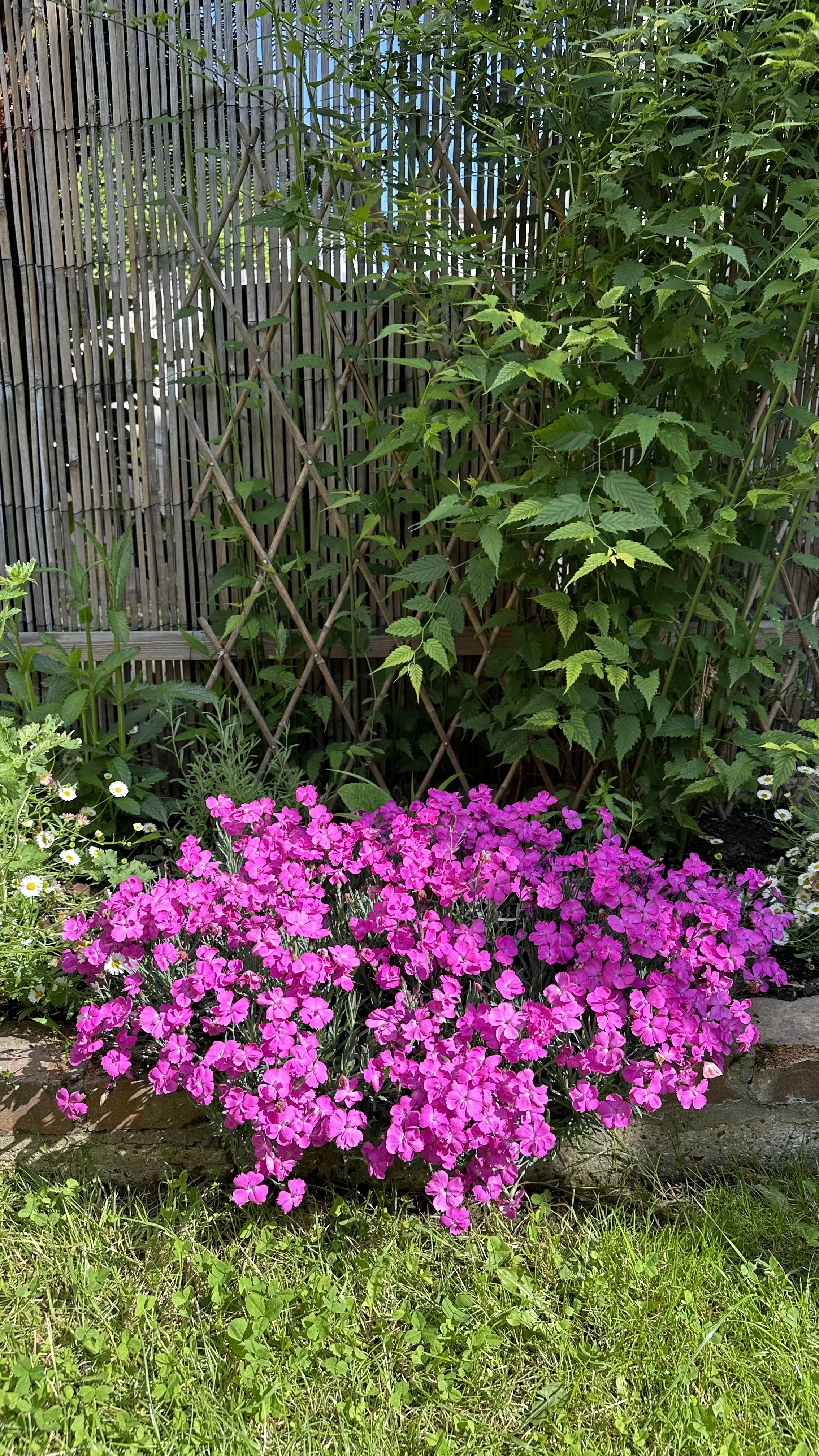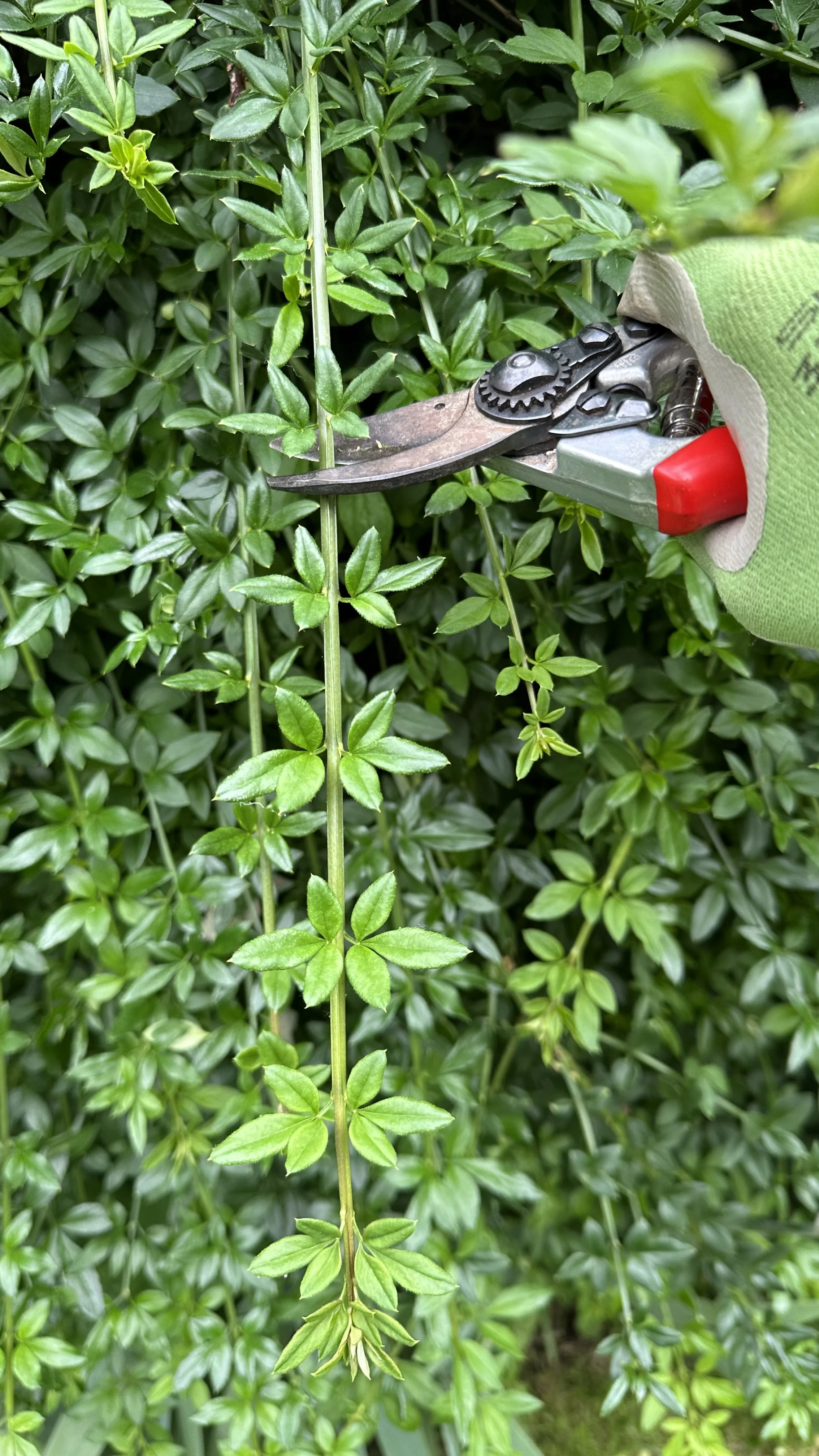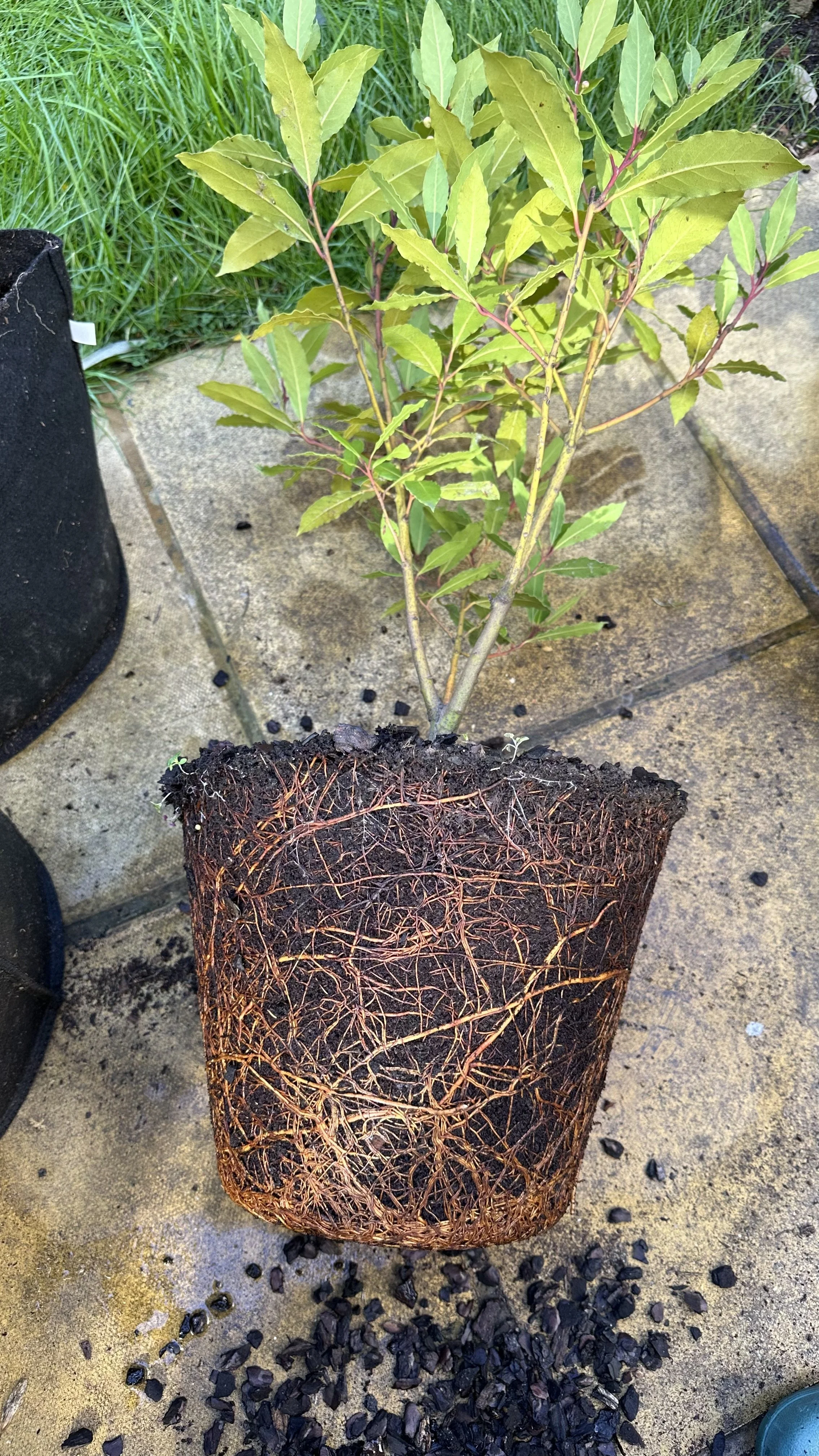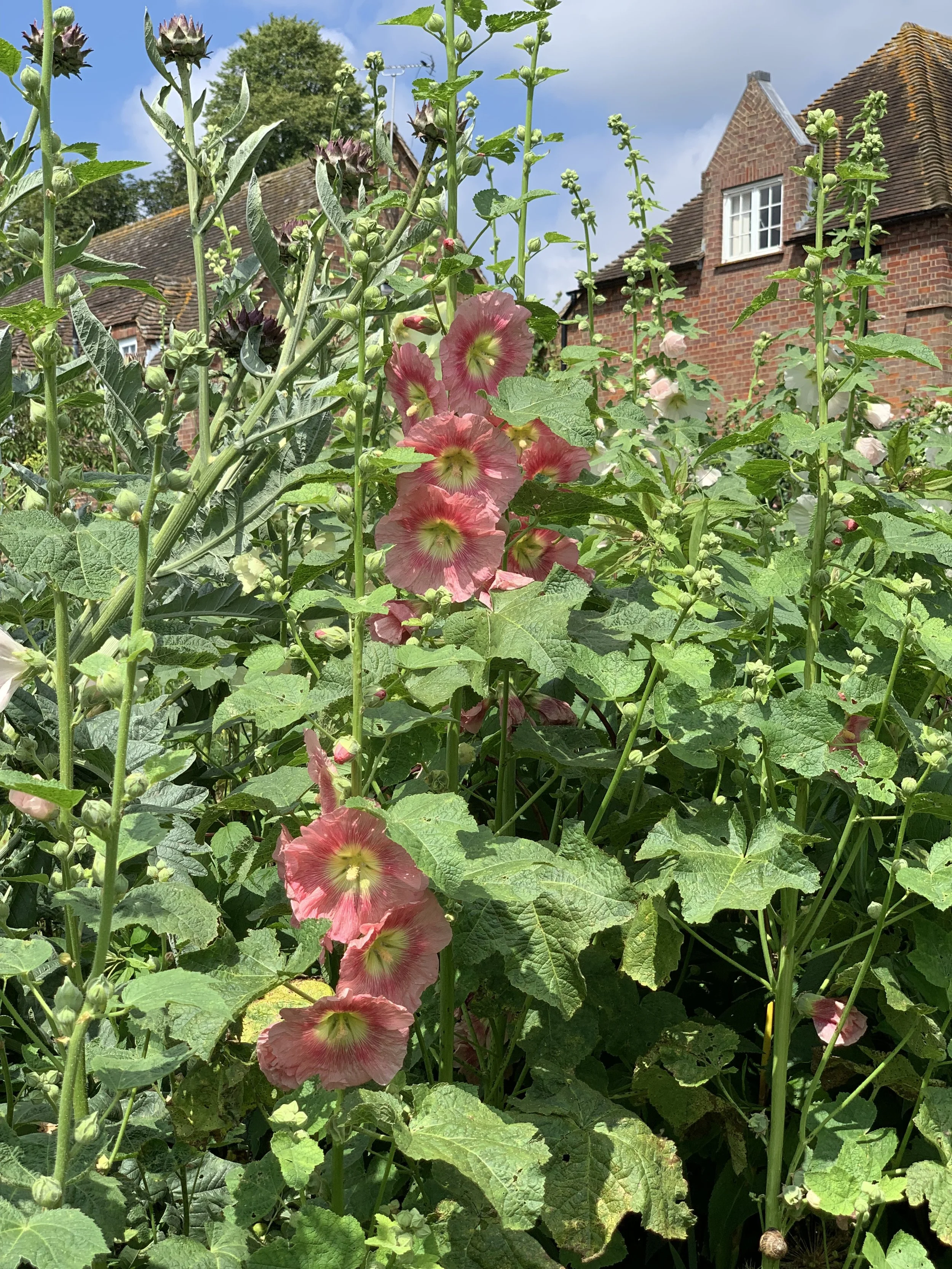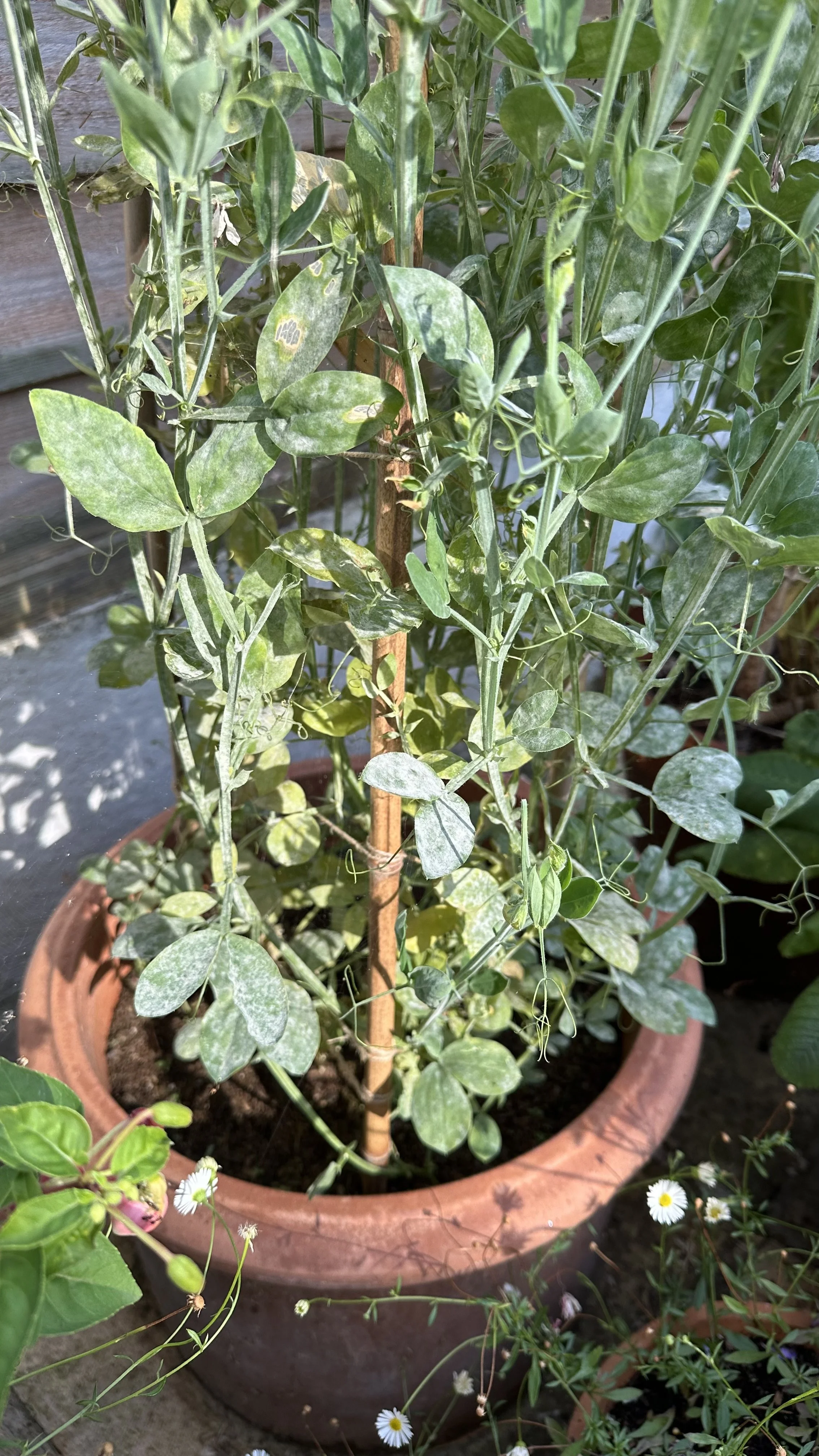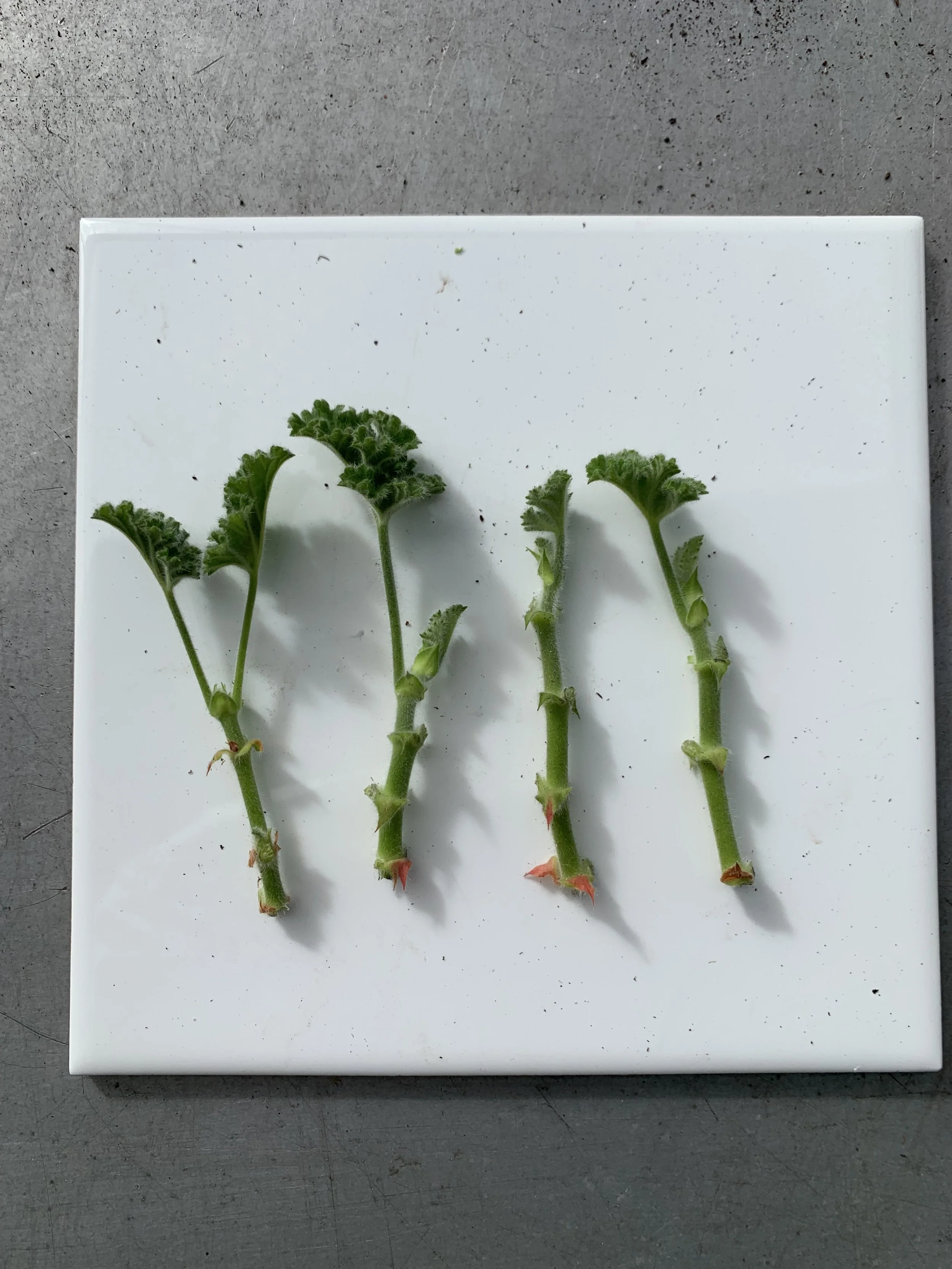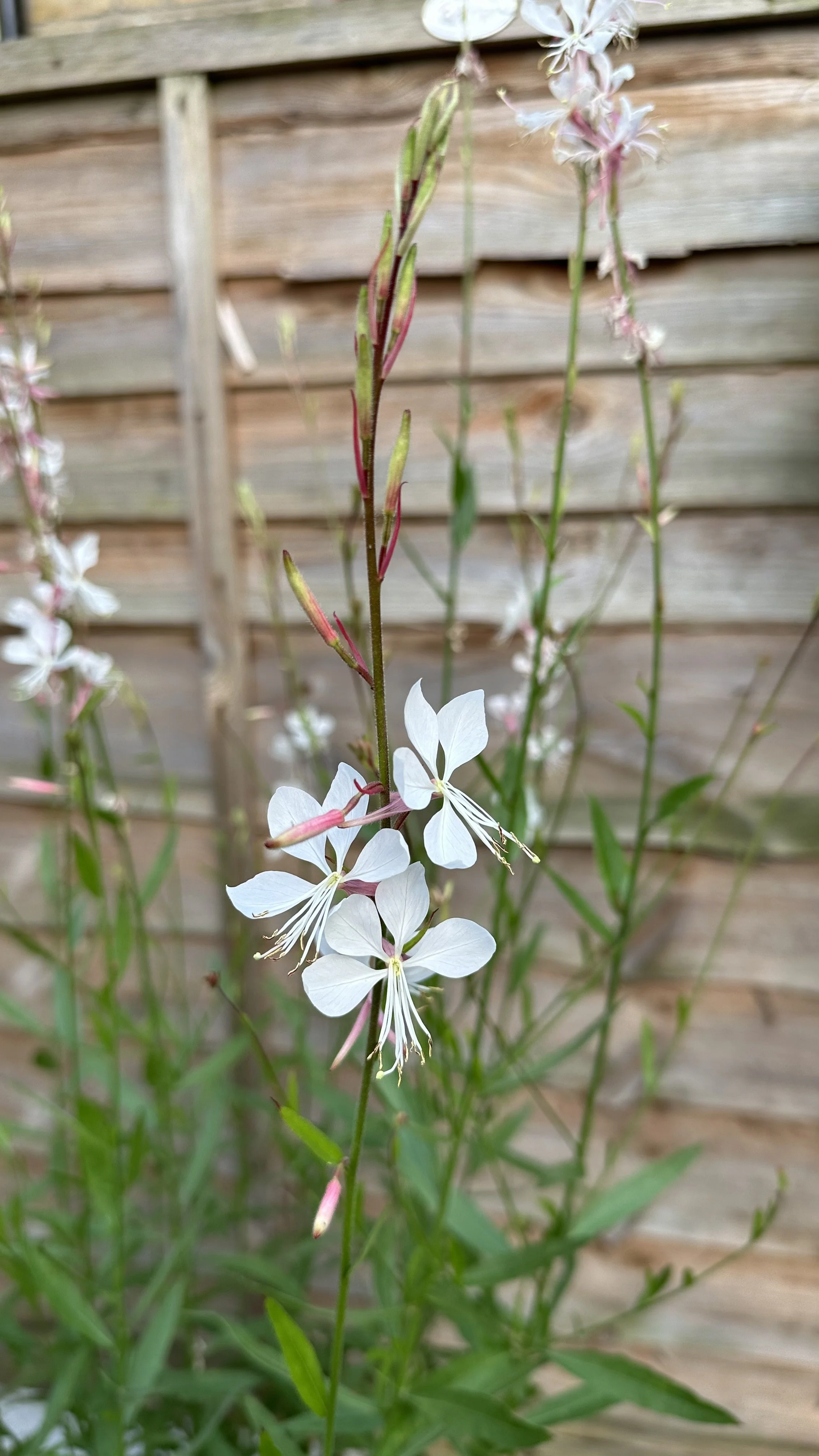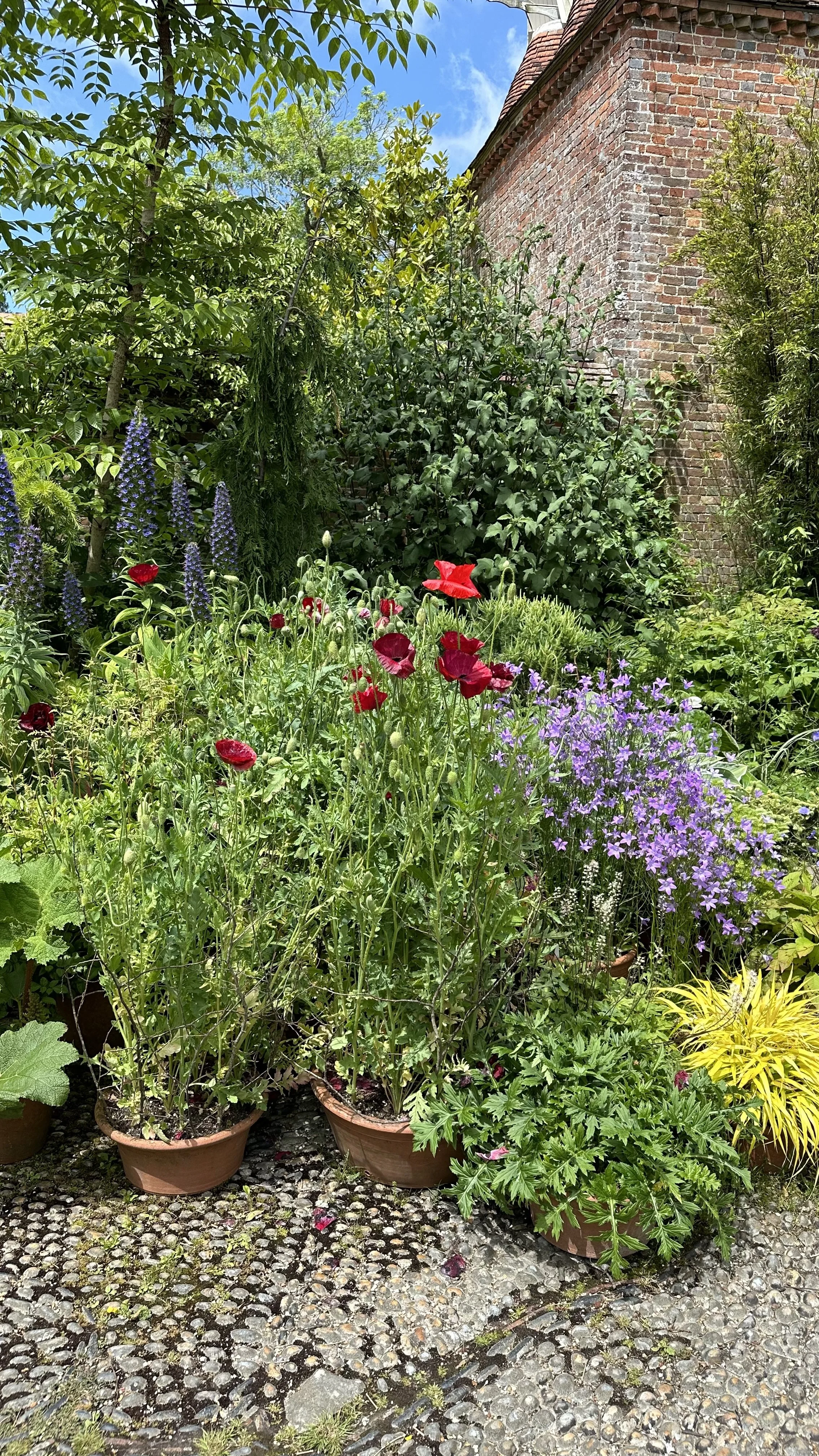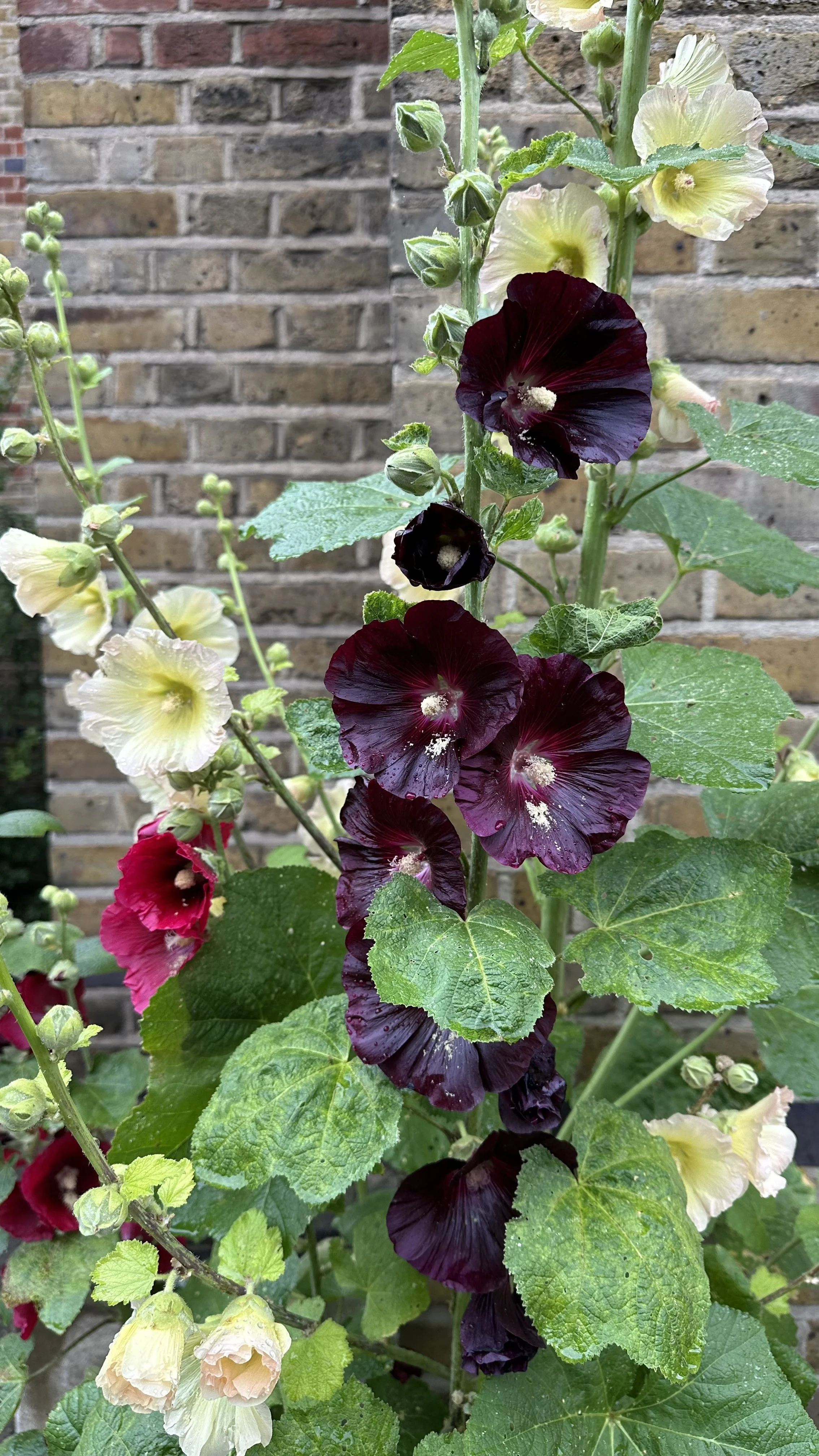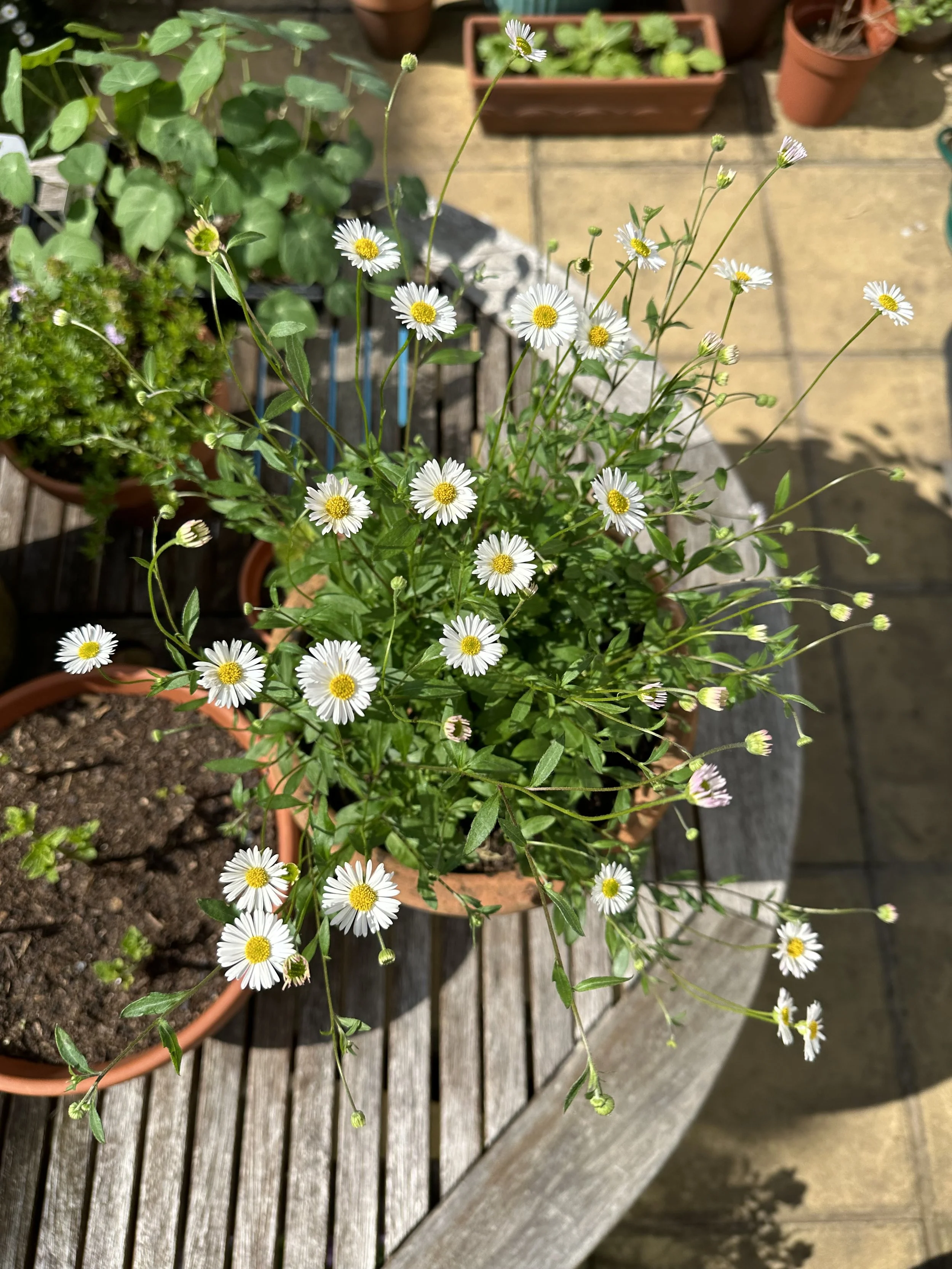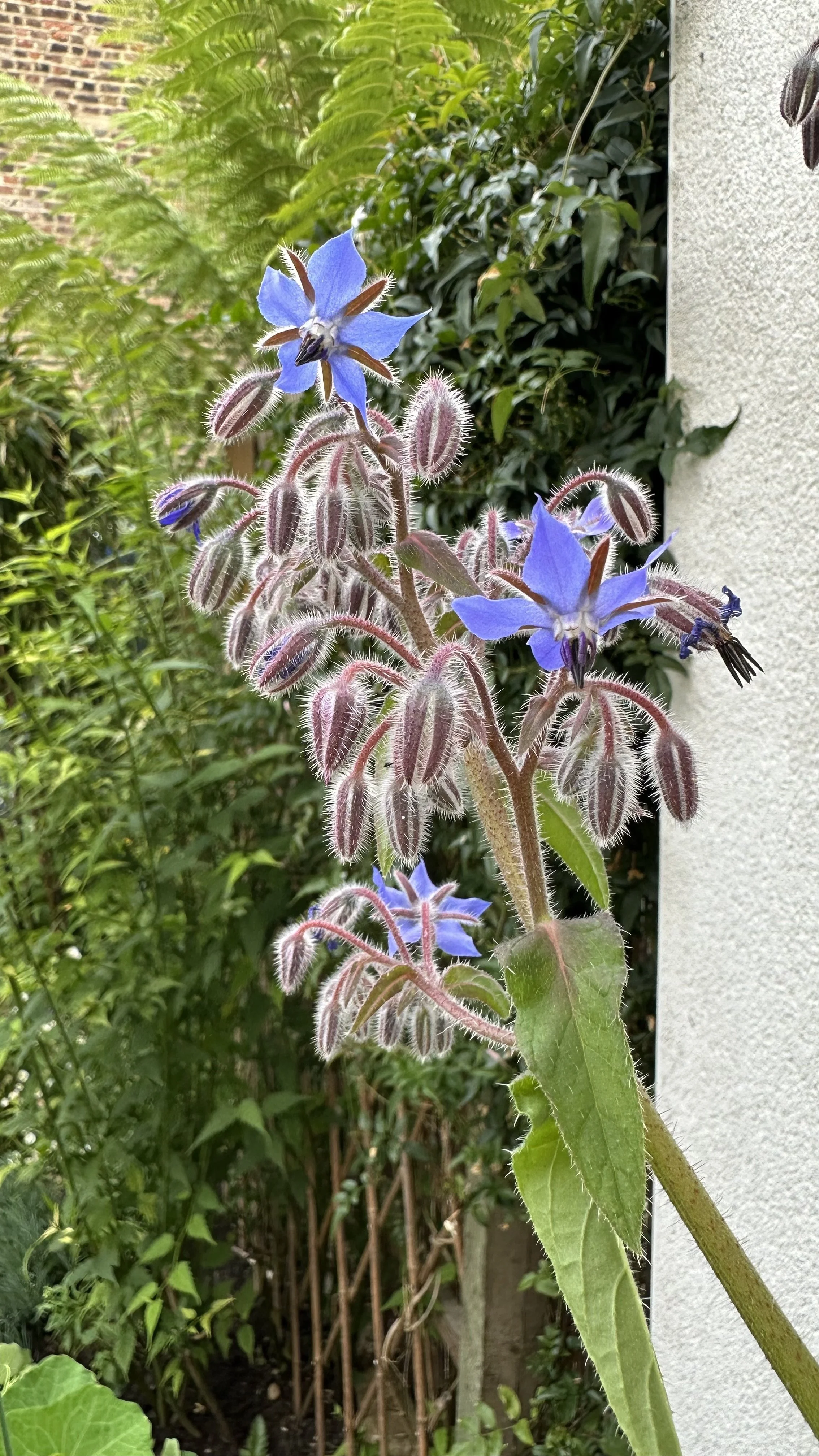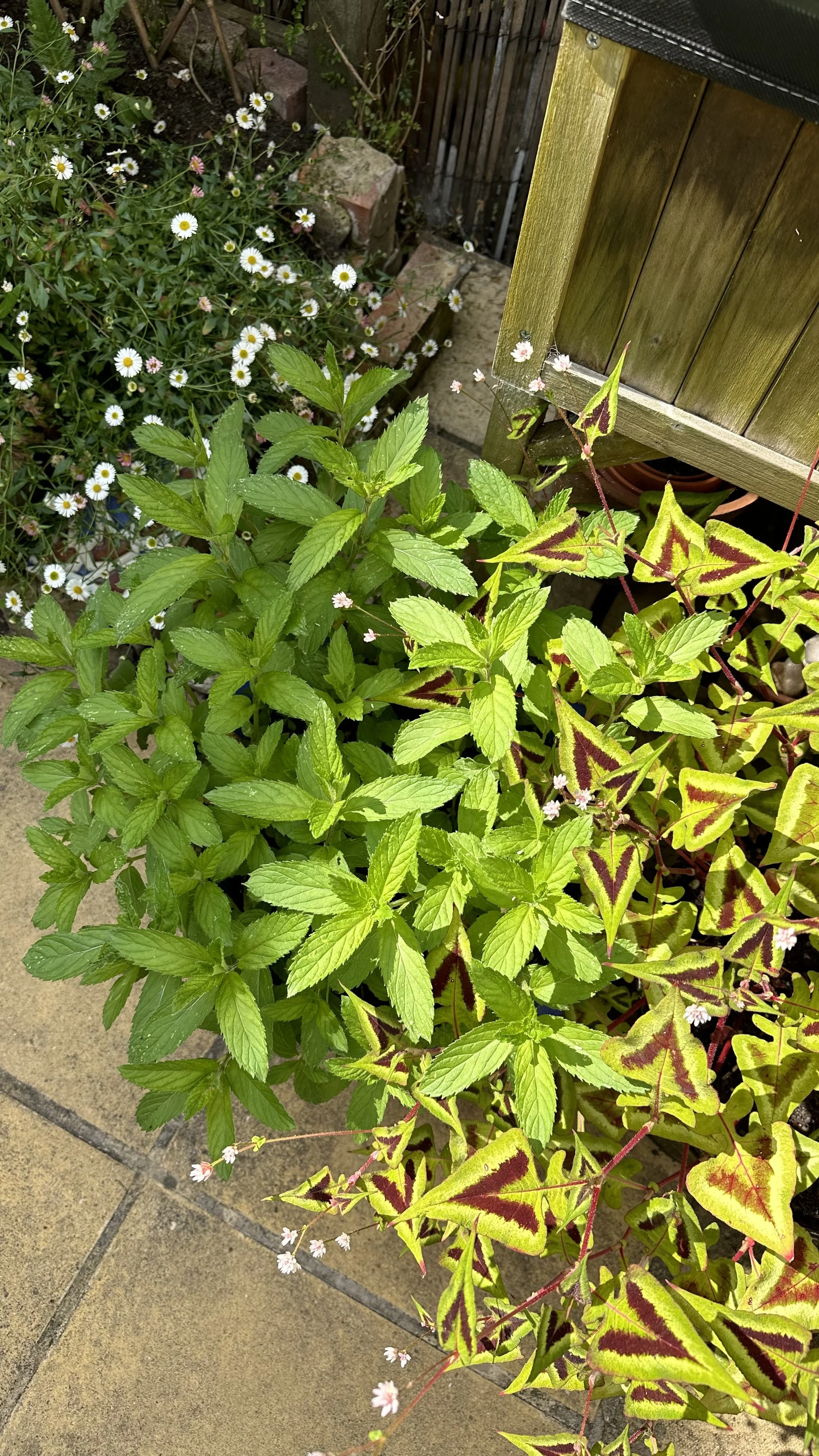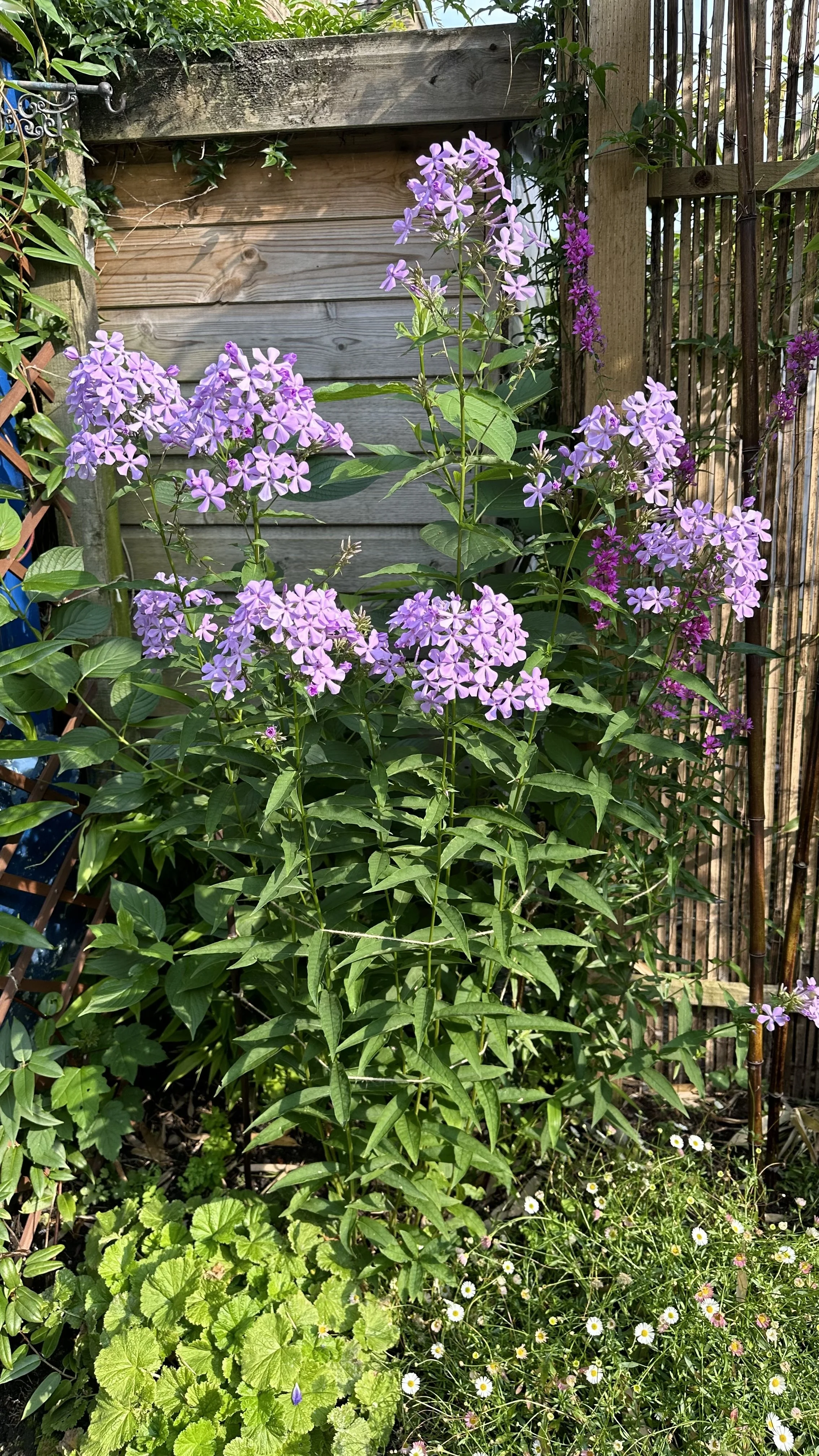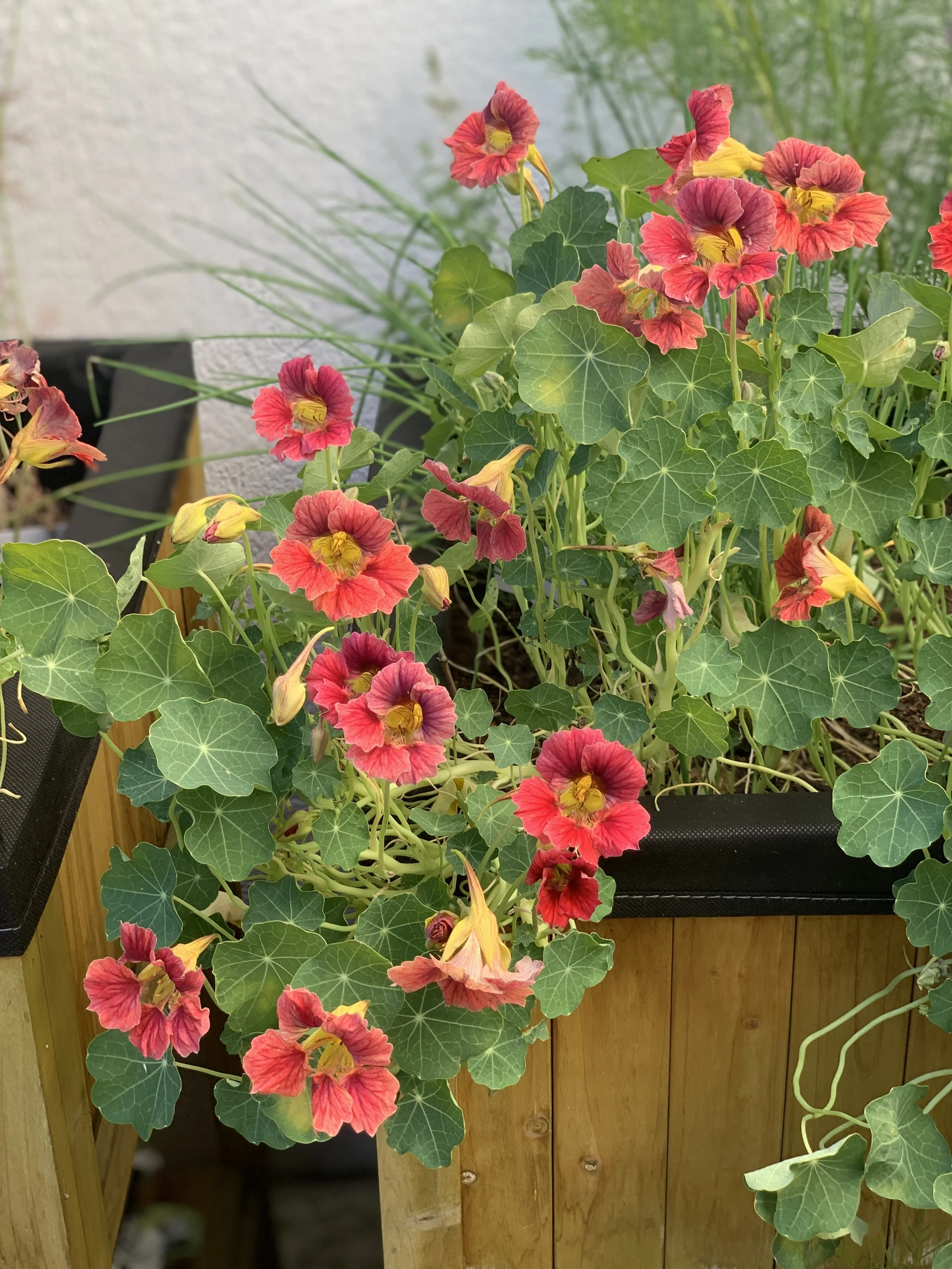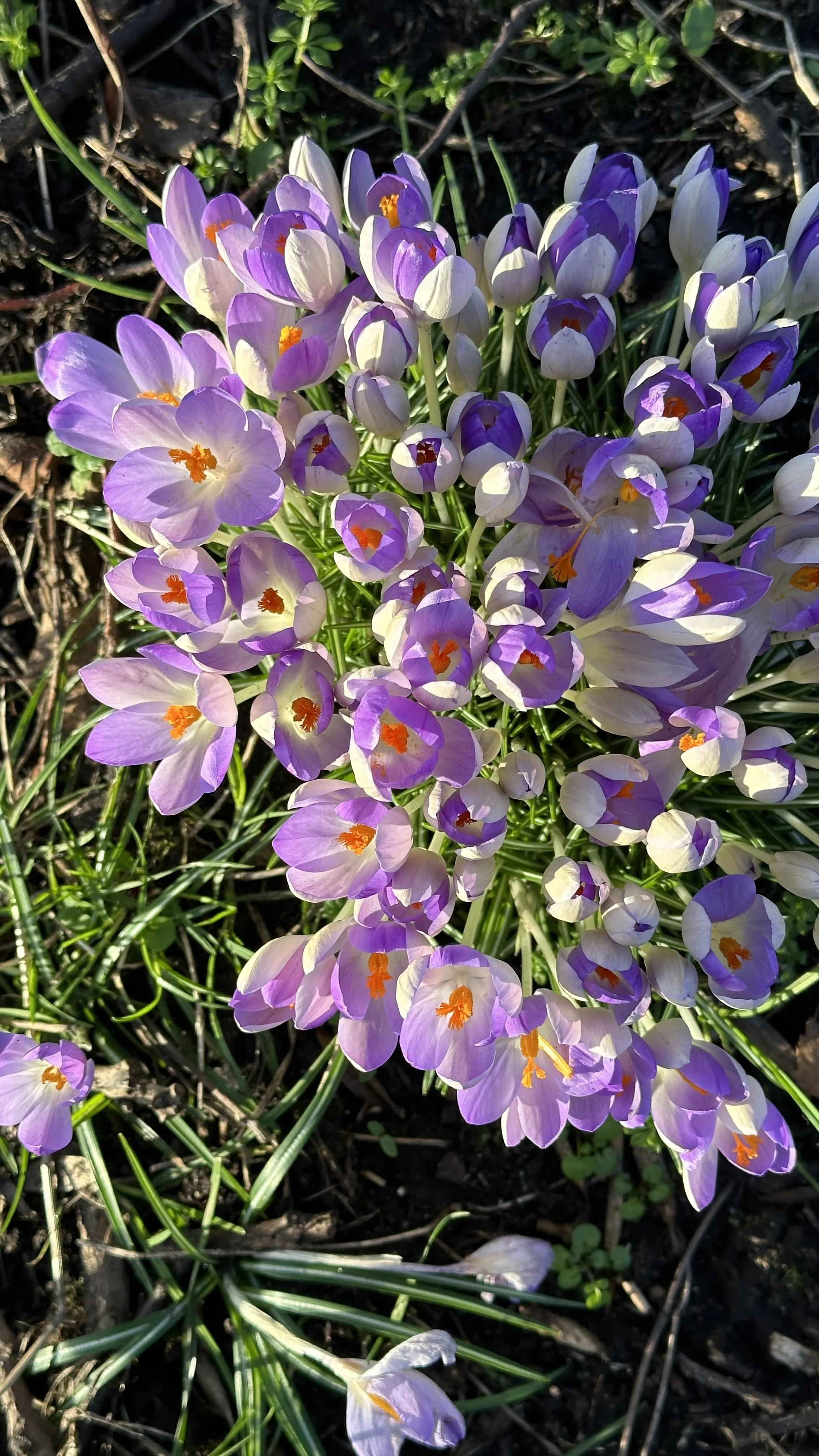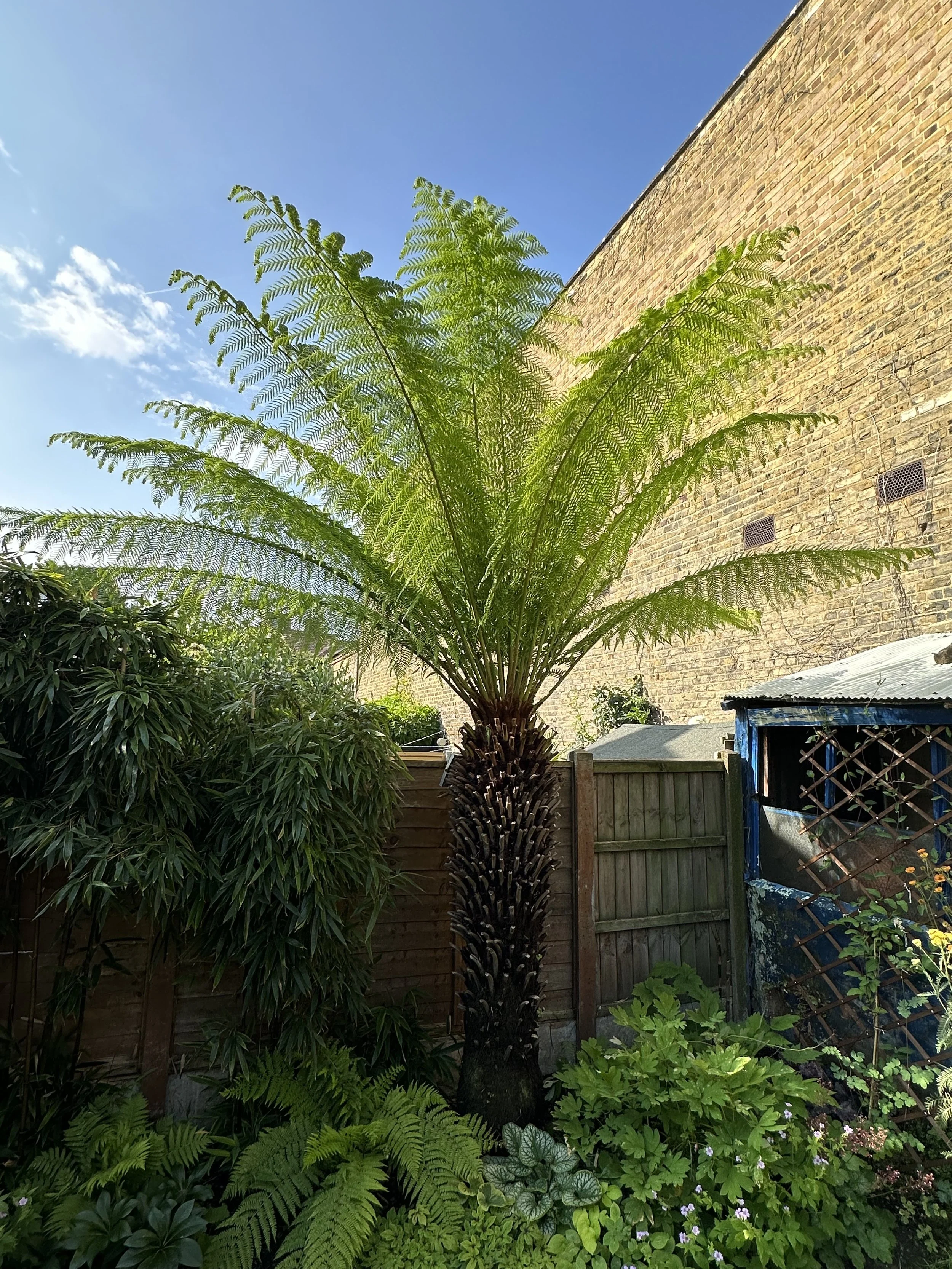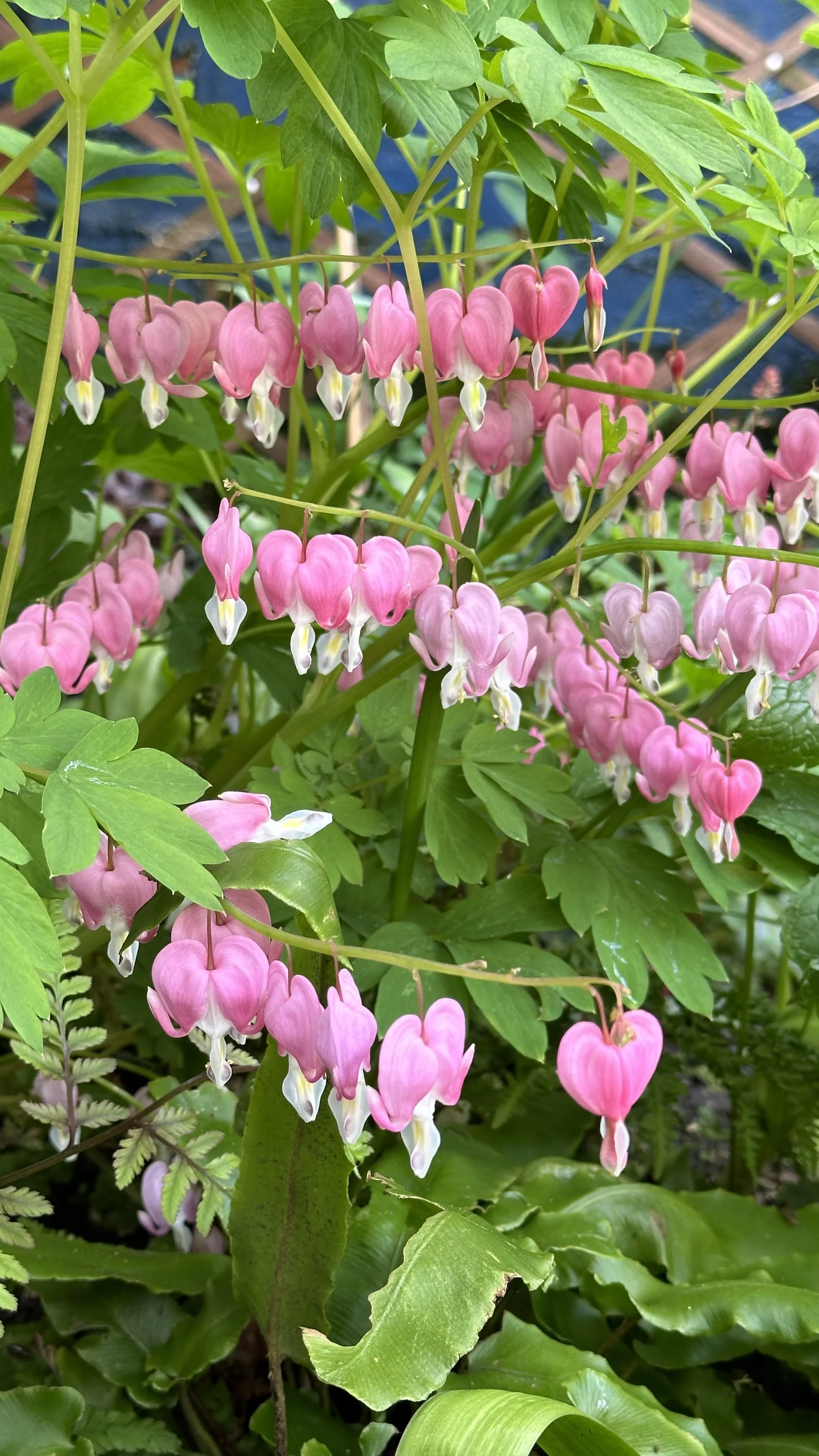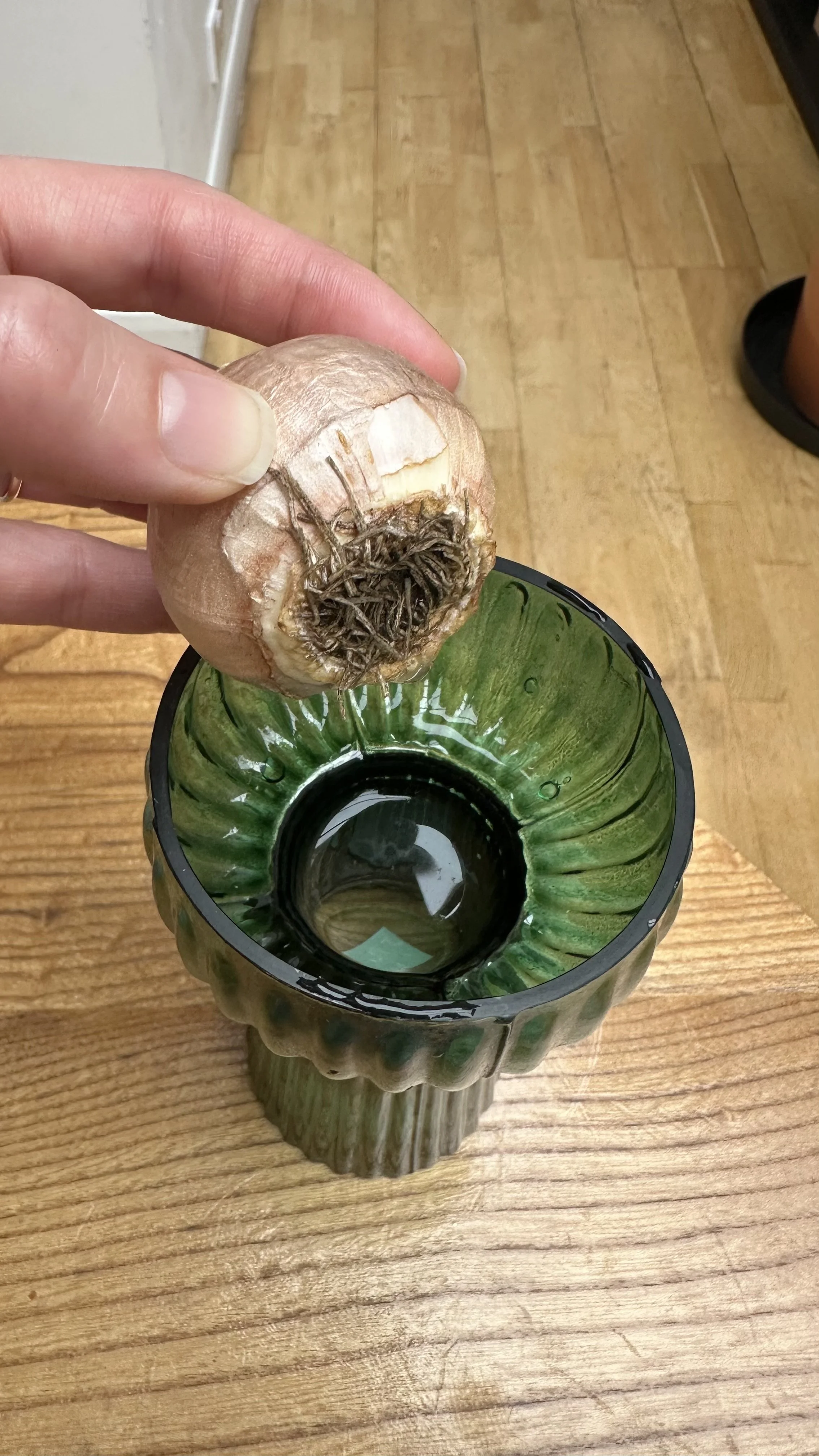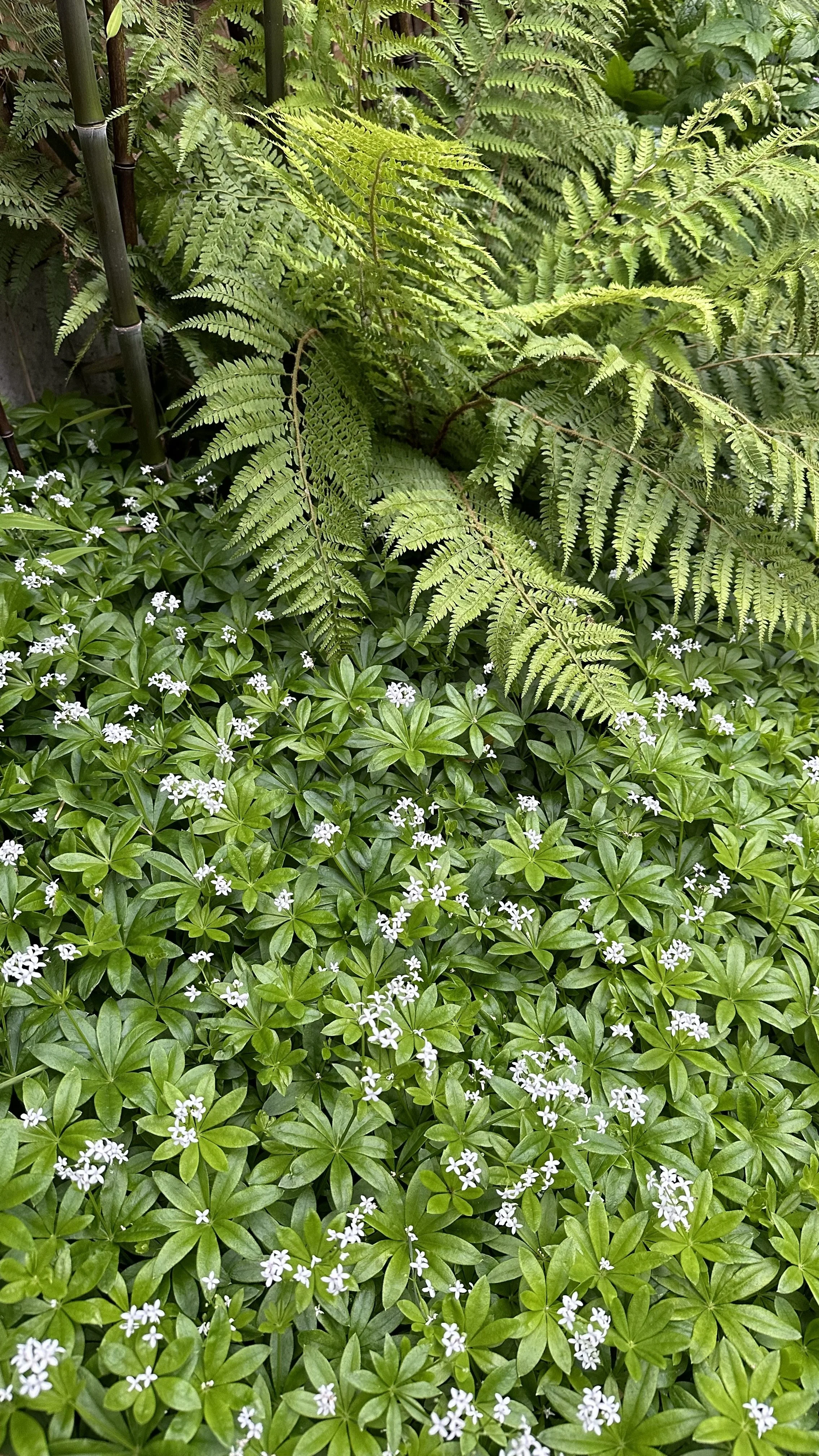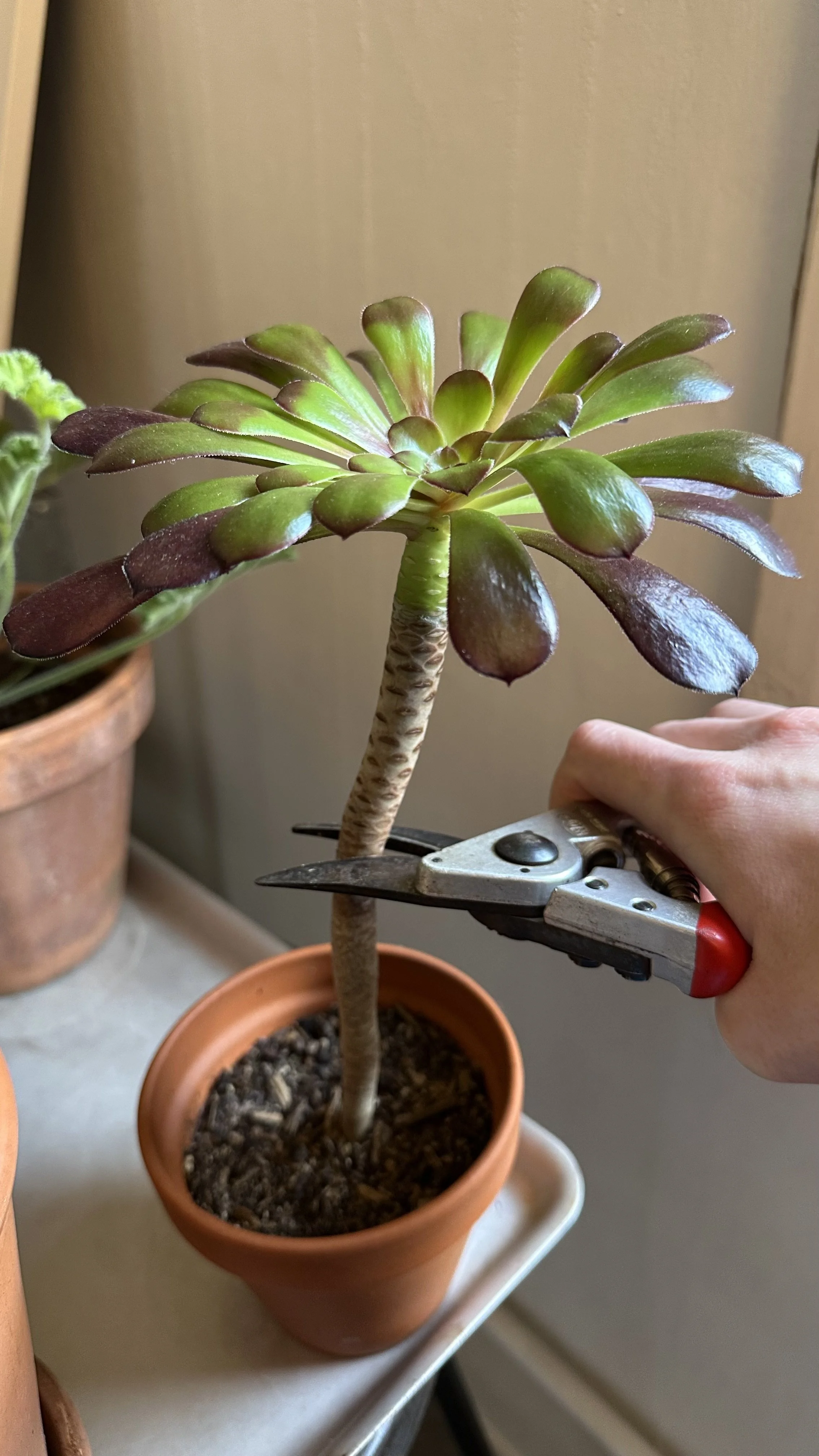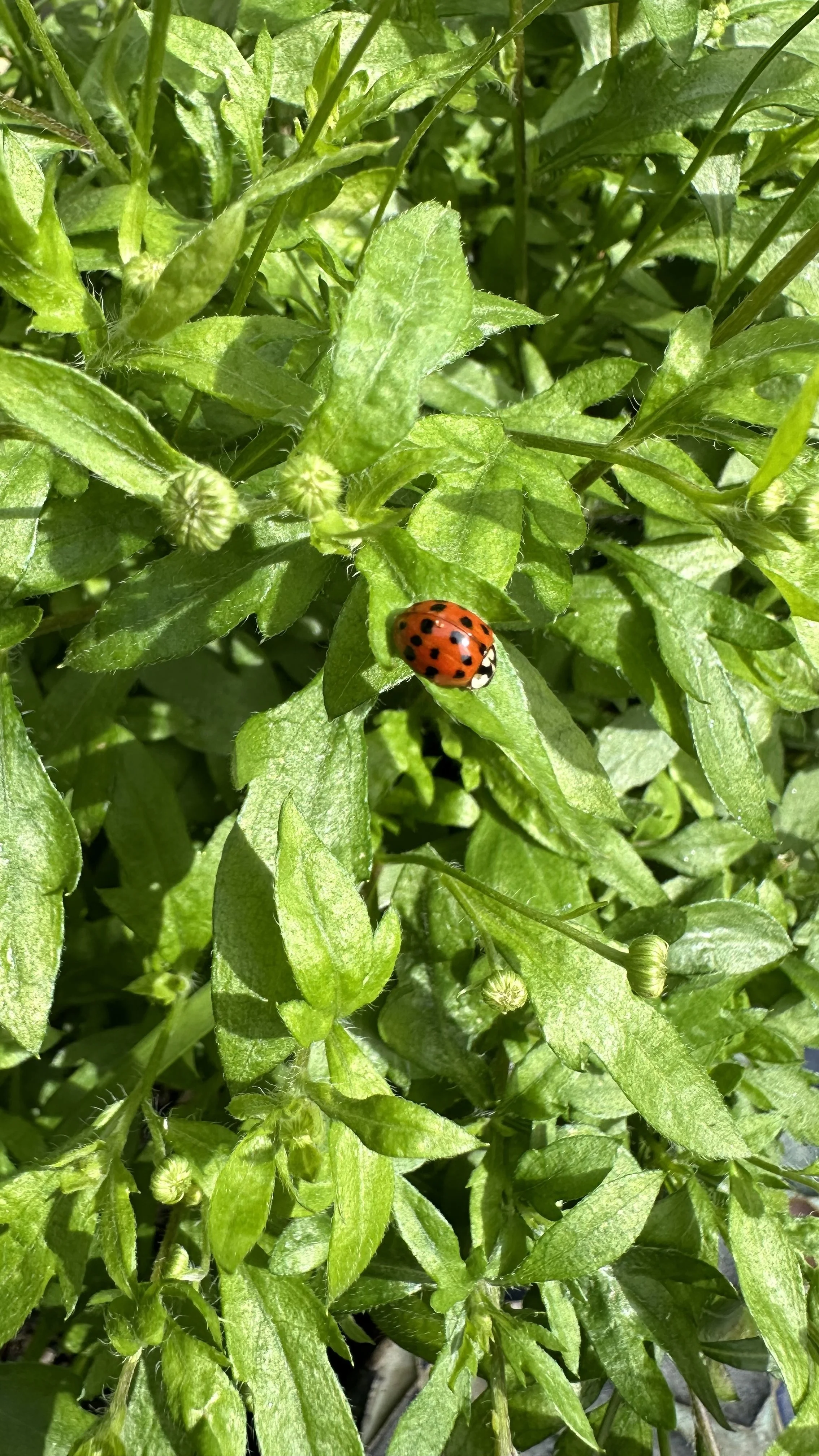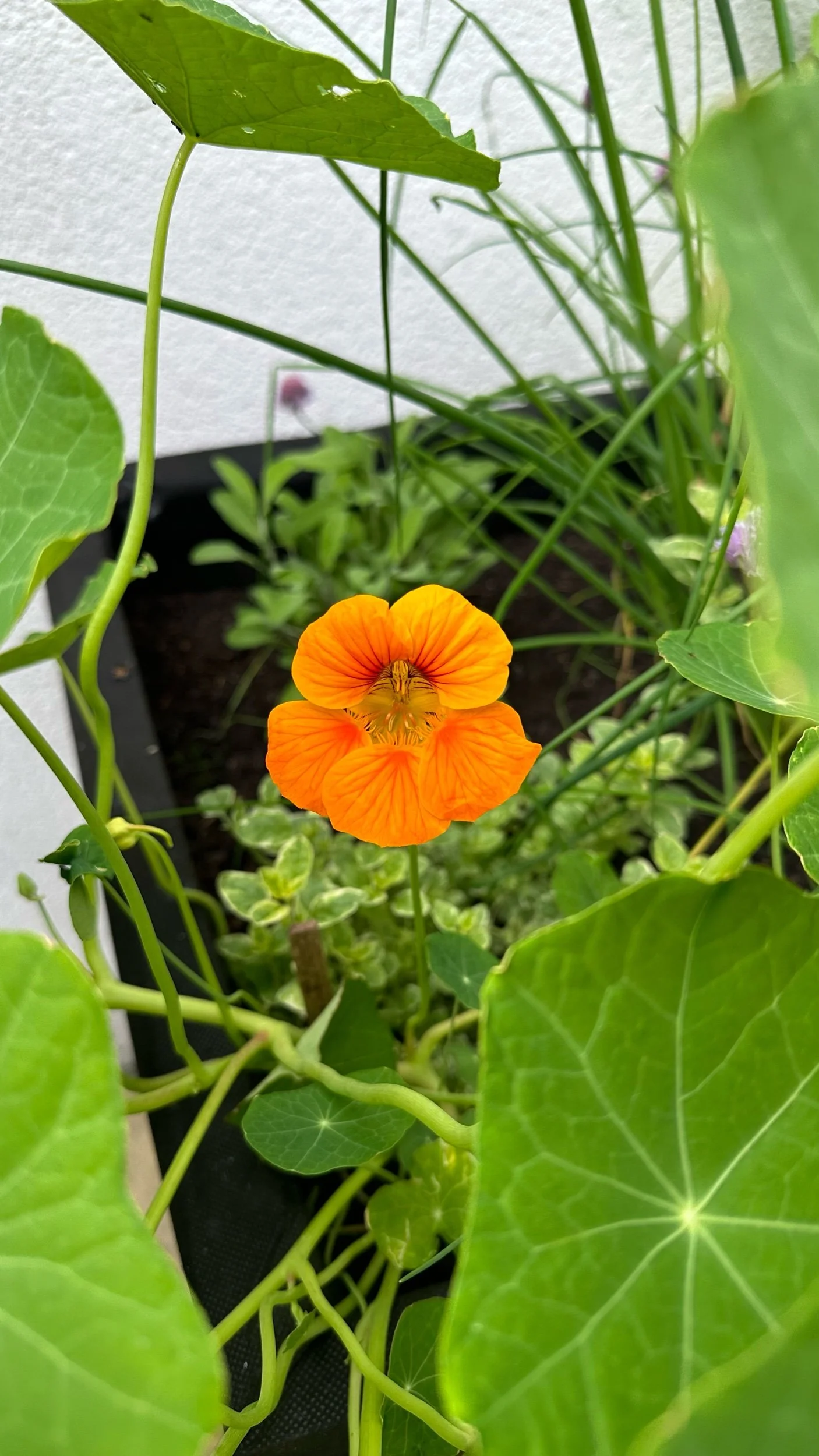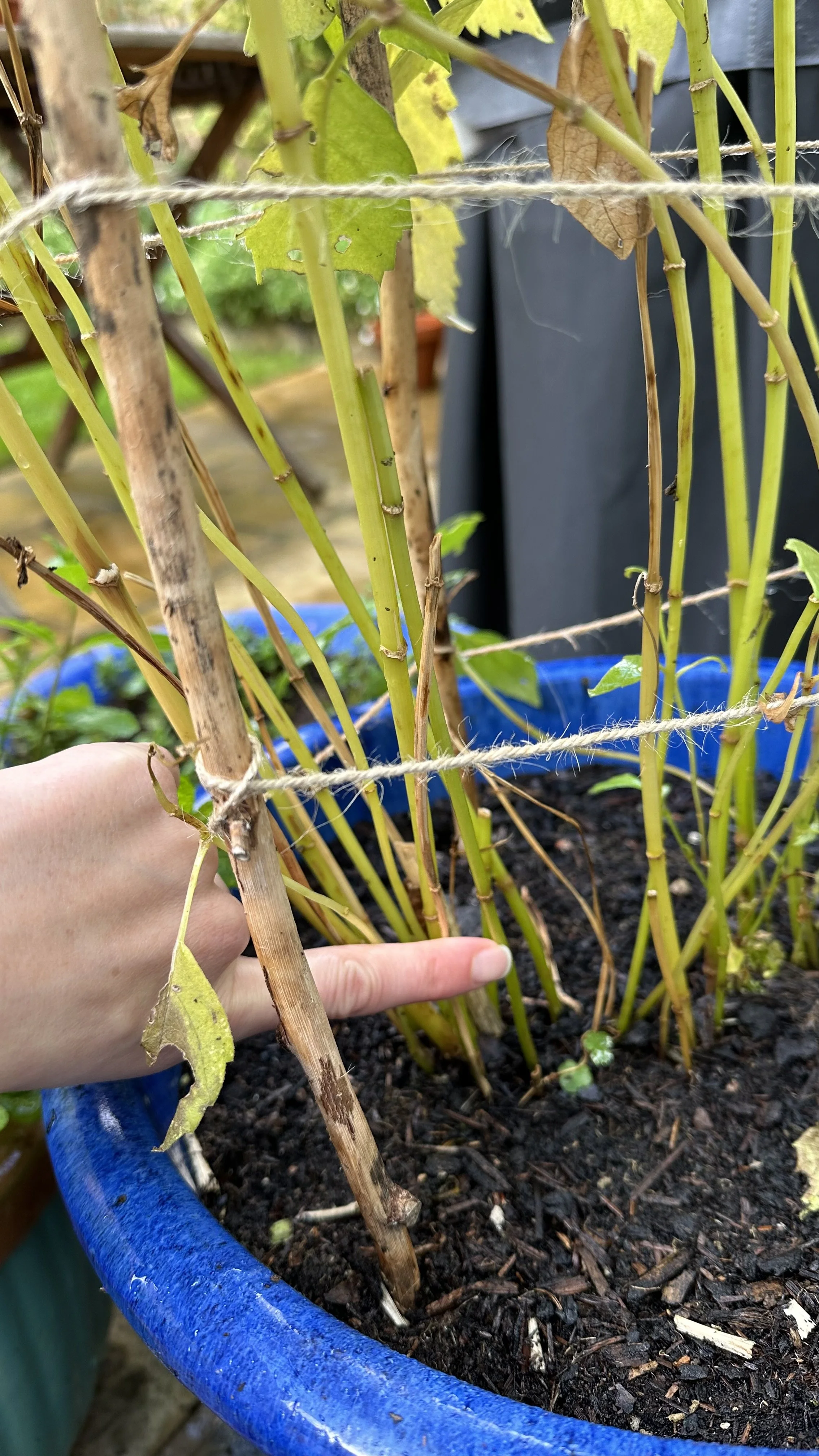The Best Chive Companion Plants
This website is reader-supported - thank you! This post may contain affiliate links. As an Amazon Associate, I earn from qualifying purchases at no extra cost to you.
In the garden, the art of companion planting is an easy strategy you can use to create a more productive space.
Among the many herbs in the garden, chives stand out for their role in companion planting.
Here we will dive into the world of chives companion plants, highlighting the unique partnerships that will bolster growth.
The chive plant, with its purple blossoms and slender green stalks, brings more to the garden than its oniony flavor.
It serves as a starting point for beneficial interactions among companion plants chives are known to support.
Discover the select chive companion plants that will transform your garden into a haven of productivity, illustrating the impact of thoughtful plant selection and placement.
To learn more about growing chives check out my guide:
A Bit About Chives
Before we get into the companions, let's talk a bit about chives themselves.
Known scientifically as Allium schoenoprasum, and their close cousin Allium tuberosum (garlic chives), these little green marvels are great both in the kitchen and the garden.
With their delicate purple flowers and grass-like leaves, they're as pretty as they are practical.
Growing chives is really easy, too.
They're not fussy about soil and once established, they'll come back year after year, bringing all their benefits without much fuss.
To learn more about companion planting, check out my guides:
Rosemary Companion Plants: Enhancing Your Garden's Health
Best Companion Plants for Chives
As I've woven chives into my garden, I've noticed how certain plants particularly flourish alongside them.
These companions benefit from chives' presence through improved growth and pest resistance.
Here's a closer look at some of the best companion plants for chives and why they're such a great match.
Carrots:
Chives help repel carrot flies, those pesky pests that can wreak havoc on your carrot crop.
The strong scent of chives masks the carrot scent, throwing off the flies.
To learn more about growing carrots, check out my guide: The Ultimate Guide to Growing Carrots in Containers.
Here are the carrots I recommend growing:
Tomatoes:
It's said that chives can improve the growth of tomatoes.
Plus, their pest-repellent qualities help keep aphids and other insects at bay.
To learn more about growing tomatoes, check out my guide: Grow Tomatoes Anywhere with Grow Bags.
Here are the tomatoes I recommend growing:
Cucumbers:
Chives can help repel cucumber beetles and improve the overall health of cucumber plants.
Their mutual support creates a beneficial environment for both to thrive.
To learn more about growing cucumbers, check out my guide: A Guide to Growing Perfect Greenhouse Cucumbers.
Here are the cucumbers I recommend growing:
Parsley and Cilantro:
These herbs share similar growing conditions with chives and can benefit from the pest-repellent properties chives offer, making them garden bed allies.
To learn more about growing parsley, check out my guide: Parsley's Perfect Partners: Companion Planting for Parsley.
Here is the parsley I recommend growing:
Dill:
While dill attracts beneficial insects, chives help repel the harmful ones, making them a perfect pair in the herb garden.
To learn more about growing dill, check out my guide: How to Prune Dill.
Here is the dill I recommend growing:
Basil:
Basil is another herb that benefits from the pest-repellent properties of chives.
Planting basil and chives together can help deter aphids and improve the robustness of both plants.
To learn more about growing basil, check out my guide: How to Propagate Basil Like a Pro.
Here is the basil I recommend growing:
Roses:
Chives can help deter aphids and black spot disease on roses.
Anecdotal evidence suggests that the health and bloom quality of roses improve when chives are planted nearby.
To learn more about growing roses, check out my guide: Companion Plants for Roses: The Perfect Partners.
Here are the roses I recommend growing:
Marigolds:
Known for their pest-repellent properties, marigolds complement chives in creating a more pest-resistant garden.
Together, they form a vibrant and effective barrier against many common garden pests.
To learn more about growing marigolds, check out my guide: How to Pair Marigold Companion Plants.
Here are the marigolds I recommend growing:
Nasturtiums:
Like marigolds, nasturtiums are excellent at repelling pests and, when planted with chives, enhance the garden's overall resilience against insect invaders.
To learn more about growing nasturtiums, check out my guide: Utilizing Nasturtium Companion Plants for Natural Pest Control.
Here are the nasturtiums I recommend growing:
The Importance of Diversity in Companion Planting
What makes chives such a versatile companion plant is their ability to coexist with a wide range of plants, offering benefits from pest control to possibly enhancing growth.
However, it's crucial to remember that companion planting is as much an art as it is a science, rooted in observation, experience, and adapting to the unique conditions of your garden.
Incorporating chives into your garden isn't just about placing them next to any plant.
It's about creating a balanced ecosystem where each plant supports the others in some way—be it through pest control, pollination, or simply by enhancing each other's growth and health.
As you plan your garden, consider chives not just as an herb for your culinary creations but as a key player in your garden's ecosystem, contributing to the health of your garden as a whole.
To learn more about companion planting, check out my guides:
Zinnia Companion Plants: Enhancing Biodiversity
For more herb gardening tips, check out my guides:
What Not to Plant With Chives
Starting out on a companion planting journey feels a bit like setting up a dinner party.
You want all your guests to get along, enhancing each other's best qualities without any clashes.
Chives, with their easy-going nature, fit into most garden settings like a charm.
However, even the most sociable herb has its limits.
Here are the plants that might not thrive when seated next to chives at the garden table.
Peas and Beans: The Sensitive Neighbors
The most notable plants to keep a polite distance from chives are peas and beans.
This isn't due to any overt antagonism but rather a subtle incompatibility that can affect the growth and productivity of these legumes.
Peas and beans are known for their beneficial relationship with soil bacteria, which helps them fix nitrogen—a process vital for their growth and for enriching the soil.
Chives, with their strong aroma and potentially allelopathic compounds (chemicals that inhibit the growth of other plants), can interfere with this symbiotic relationship, leading to less vigorous growth or reduced yields.
The Science Behind the Sensitivity
Why exactly do peas and beans react this way?
It's largely thought to be due to the strong scents and potentially the specific chemical makeup of chives, which may disrupt the delicate balance these legumes have with their environment.
While not all gardeners experience dramatic effects, the consensus is to err on the side of caution and give peas and beans their space.
The Ripple Effect in Companion Planting
This incompatibility serves as a reminder of the complex web of interactions in our gardens.
Plants communicate and interact with their environment in ways that are not always visible or understood.
By acknowledging these subtle relationships, you can tailor your planting strategies to support the health and productivity of each plant.
Creating Harmonious Spaces
So, how do we ensure harmony in the garden with these dynamics in play?
The key lies in spatial planning and rotation.
Keeping chives at a reasonable distance from peas and beans allows each to thrive without interference.
Additionally, rotating crops annually helps prevent any negative buildup in the soil and keeps the garden ecosystem balanced and healthy.
Understanding these interactions is part of the joy and challenge of gardening.
It reminds us that each plant brings its own set of characteristics to the garden, and learning how to best support their coexistence is what turns a garden from just a plot of land into a thriving ecosystem.
For more companion planting tips, check out my guides:
Why Chives Make Excellent Companions
Pest Repellents
One of the reasons chives are such fantastic companions in the garden is their natural ability to repel pests.
From carrot flies to Japanese beetles and aphids, these herbs work wonders in keeping those unwanted visitors at bay.
It's like having a natural, aromatic guard around your beloved plants.
For more herb garden ideas, check out my guides:
Quick FAQs
How do I start growing chives?
Starting chives in your garden or pot is really straightforward.
You can begin with seeds or small plants.
If using seeds, plant them in well-draining soil in a spot that gets plenty of sunlight.
Chives aren't picky about the soil but thrive in a location that gets at least six hours of sunlight daily.
Keep the soil moist but not waterlogged.
Chives are perennials, so once established, they'll return to delight you year after year.
They also don't mind the cold much and will be one of the first herbs to pop up in spring.
To learn more about growing chives, check out my guide: The Ultimate Guide to Growing Chives in Pots.
Can chives help with any garden pests?
Absolutely!
Chives are natural pest repellents, making them a fantastic companion in the garden.
Their scent can deter carrot flies, cucumber beetles, and aphids, among others.
Planting chives near susceptible vegetables can help keep these pests at bay without the need for chemical pesticides, making your garden a safer place for you and the environment.
Are there health benefits to eating chives?
Chives are not only a tasty addition to many dishes but also pack a punch in terms of health benefits.
They are rich in vitamins A and C, which are important for vision, immune function, and skin health.
Chives also contain antioxidants that help protect your body from damage by free radicals.
Additionally, they offer a modest amount of minerals like potassium and calcium, essential for heart health and strong bones.
What's the difference between chives and garlic chives?
Chives (Allium schoenoprasum) and garlic chives (Allium tuberosum) are close relatives but have distinct flavors and uses.
Chives have a mild onion flavor, making them a versatile addition to many dishes.
Garlic chives, on the other hand, have flat leaves and a gentle garlic flavor. Both can be used in cooking and offer similar gardening benefits, but garlic chives may bring a more pronounced garlic essence to dishes.
Can you plant chives near cucumbers?
Yes, chives can be planted near cucumbers and make excellent companions.
The strong scent of chives can help repel common cucumber pests like cucumber beetles and aphids.
Moreover, the presence of chives may enhance the growth and flavor of cucumbers, making this pairing beneficial for both plants.
Are peas and chives companion plants?
While chives are beneficial to many plants in the garden, peas are an exception.
It's generally recommended to keep chives and peas apart.
Chives may inhibit the growth of peas due to their strong aroma and possible allelopathic effects, which can interfere with the peas' ability to thrive.
Are chives and strawberries companion plants?
Chives and strawberries can indeed be good companions in the garden.
Planting chives near your strawberry plants can help deter pests that are attracted to strawberries, such as aphids.
Additionally, the chives can attract beneficial pollinators, which are vital for the fruiting of your strawberries.
This symbiotic relationship can contribute to a healthier, more productive strawberry patch.
Are chives and parsley good companion plants?
Yes, chives and parsley make good companion plants.
They can be planted together without any negative effects on each other.
Both herbs enjoy similar growing conditions, and the strong scent of chives may even help protect parsley from pests.
Together, they can create a lush herb garden section that's as practical as it is beautiful.
Pin this post to save it for later!

